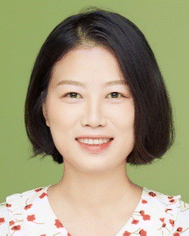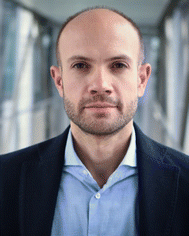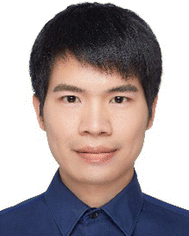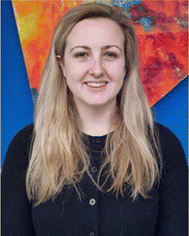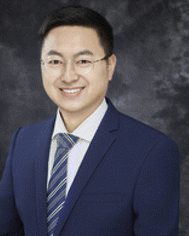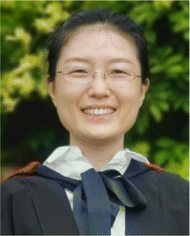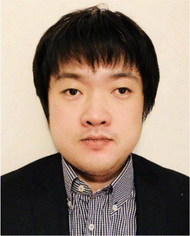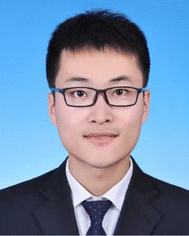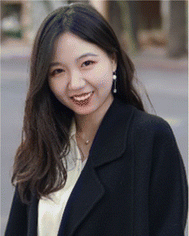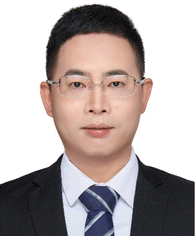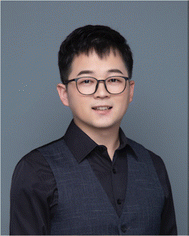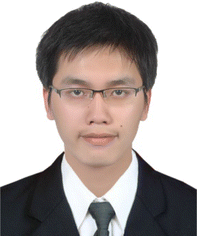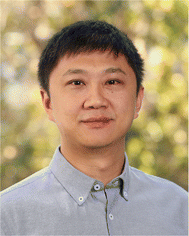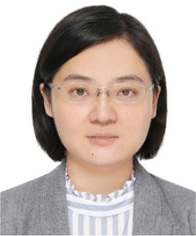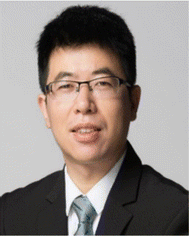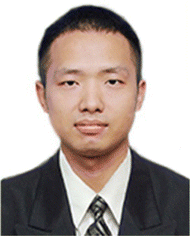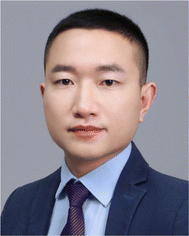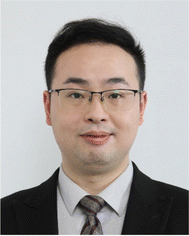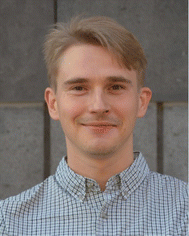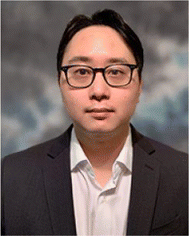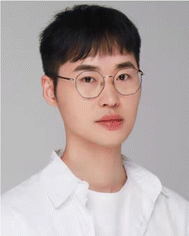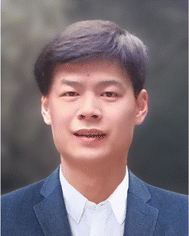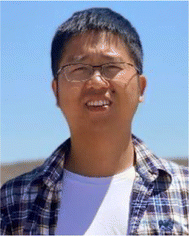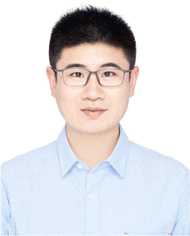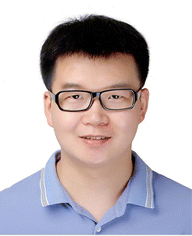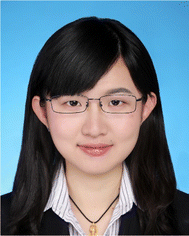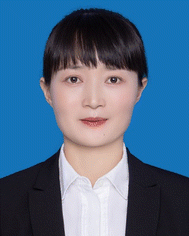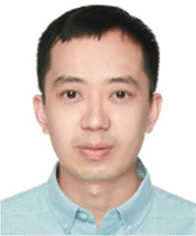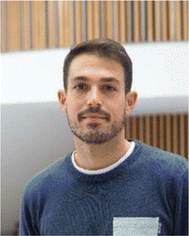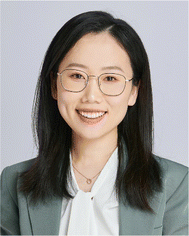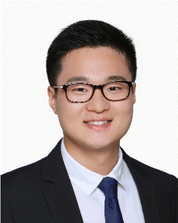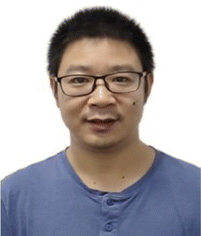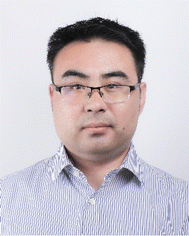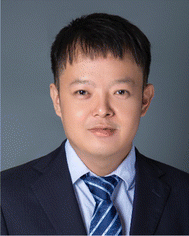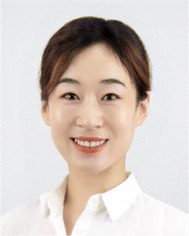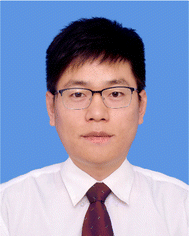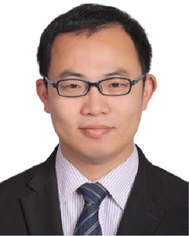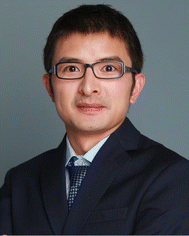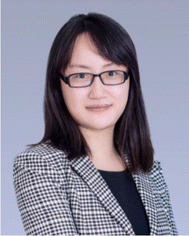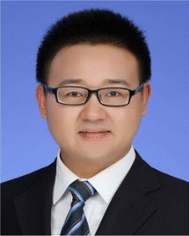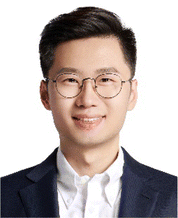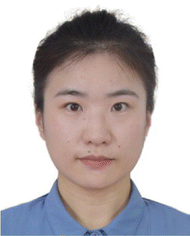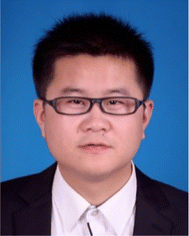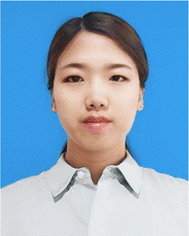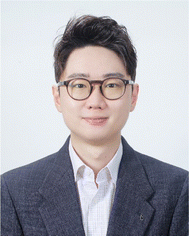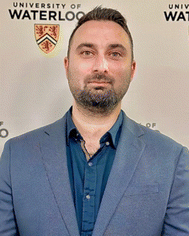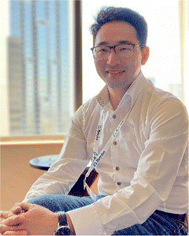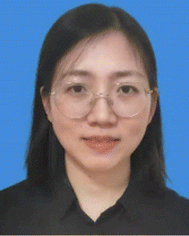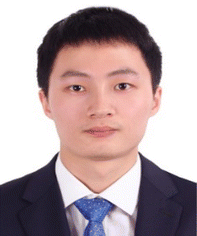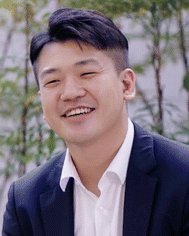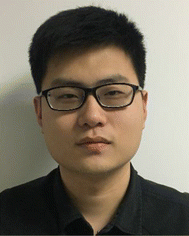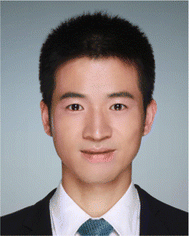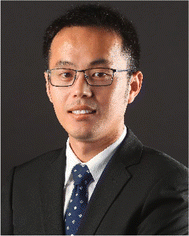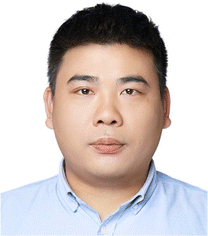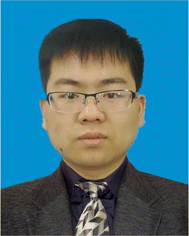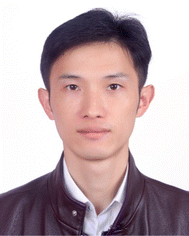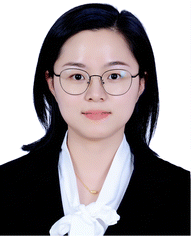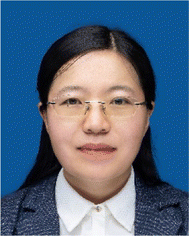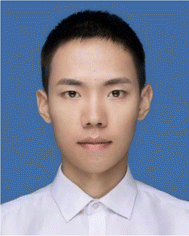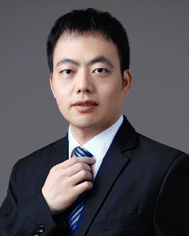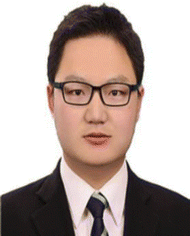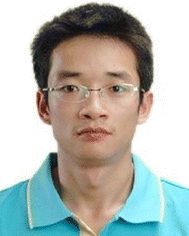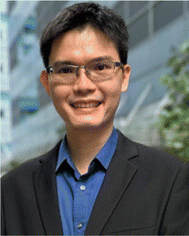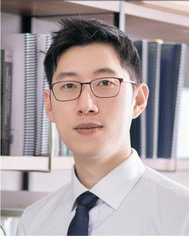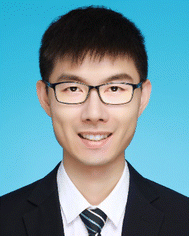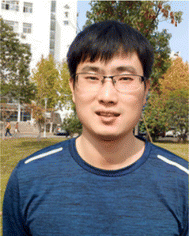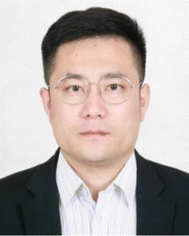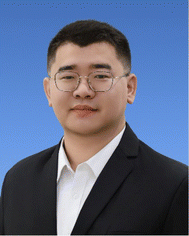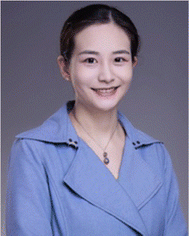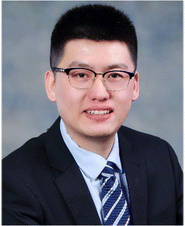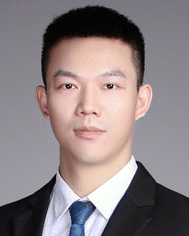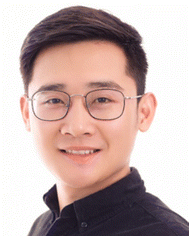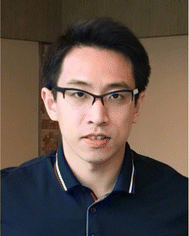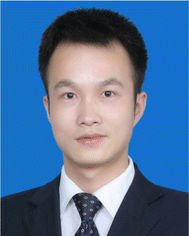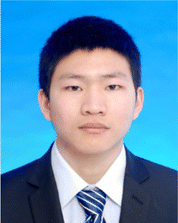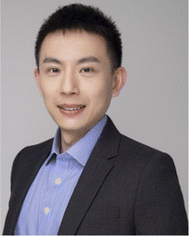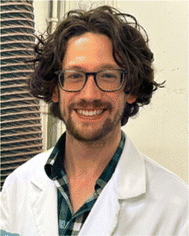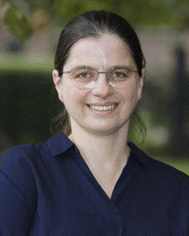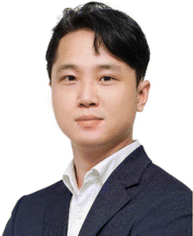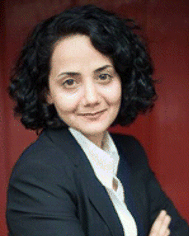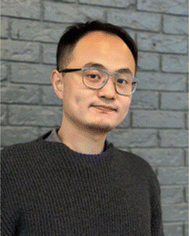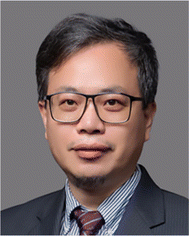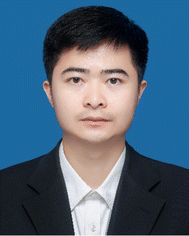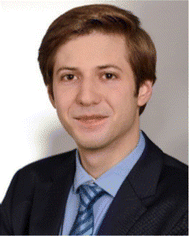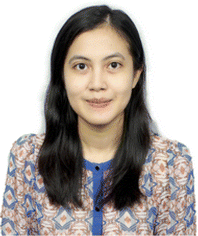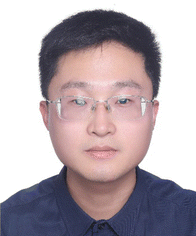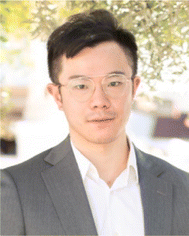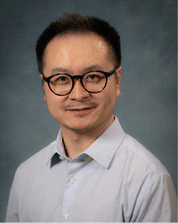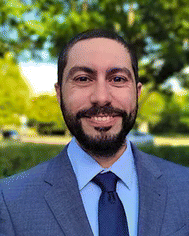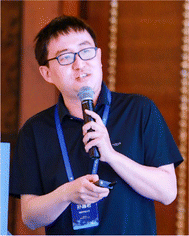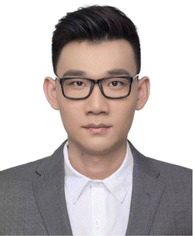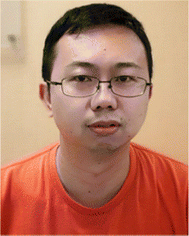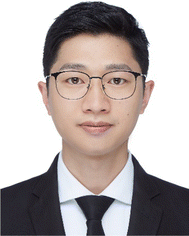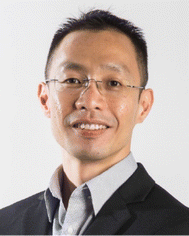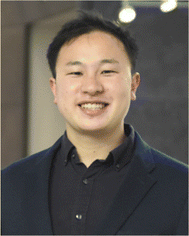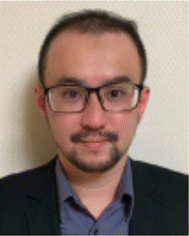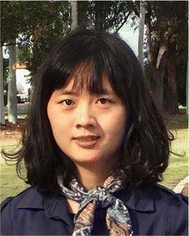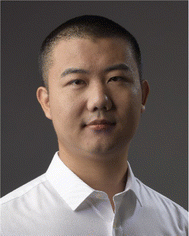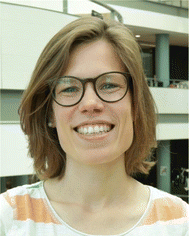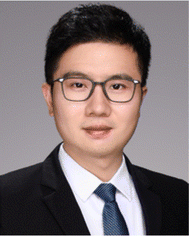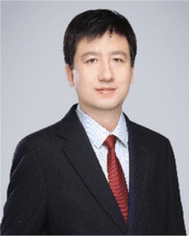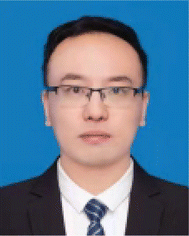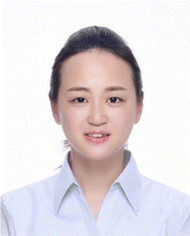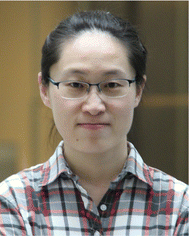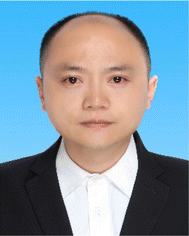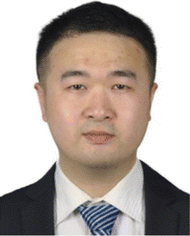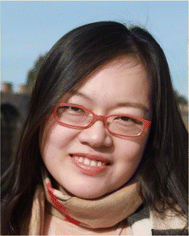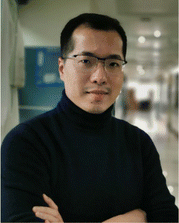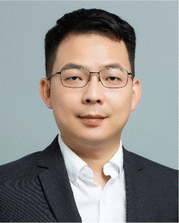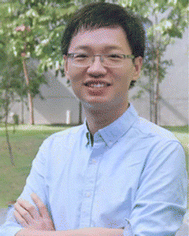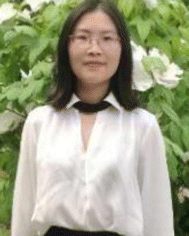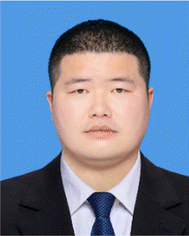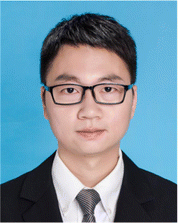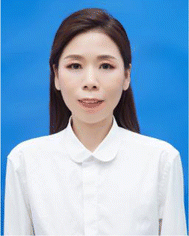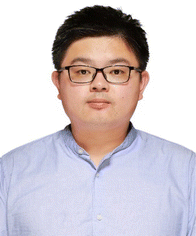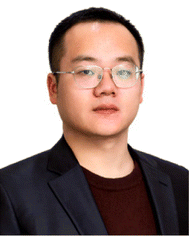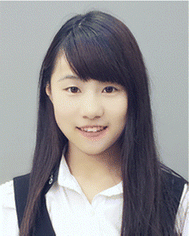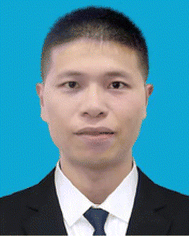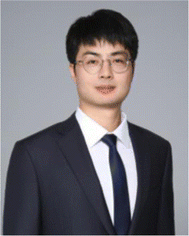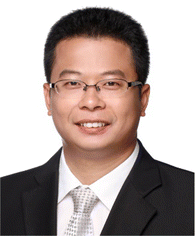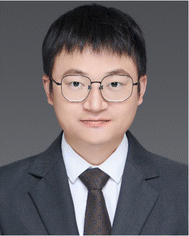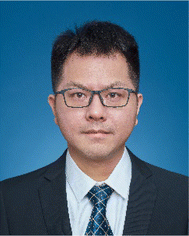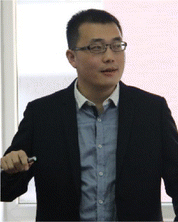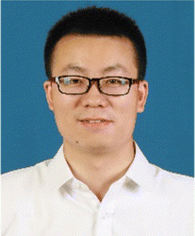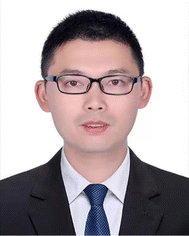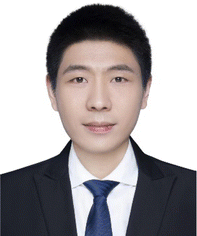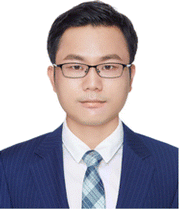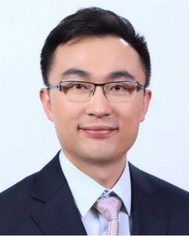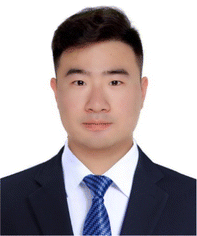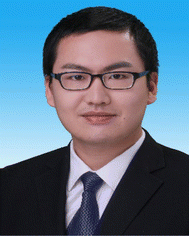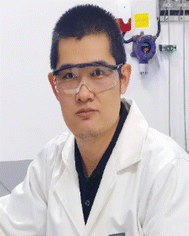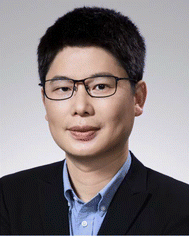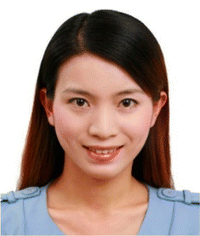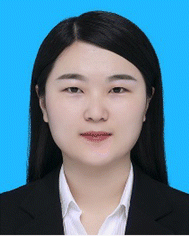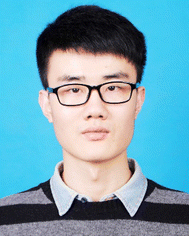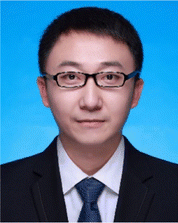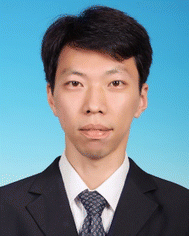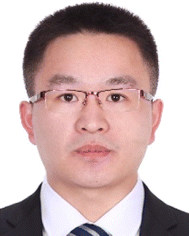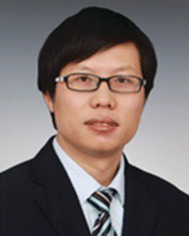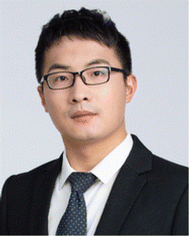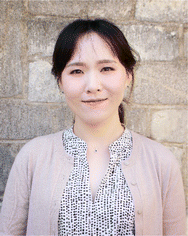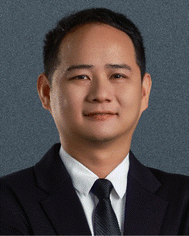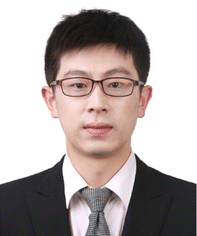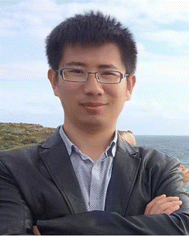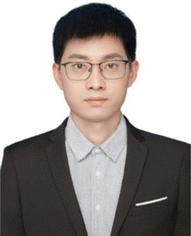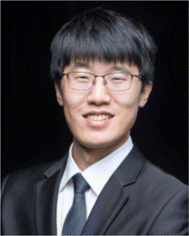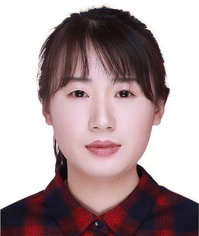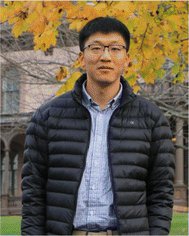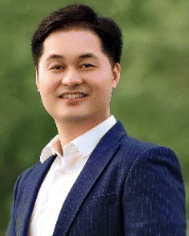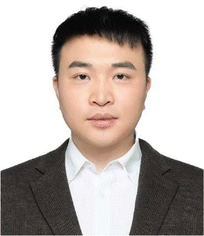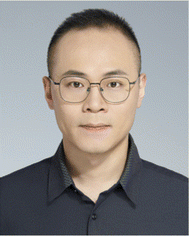DOI:
10.1039/D4TA90177K
(Profile)
J. Mater. Chem. A, 2024,
12, 27086-27122
Contributors to the Journal of Materials Chemistry A Emerging Investigators 2024 collection
Abstract
Our 2024 Emerging Investigators themed collection gathers some of the best research being conducted by scientists in the early stages of their independent career. Each contributor was recommended as carrying out work with the potential to influence future directions in materials chemistry. Congratulations to all the researchers featured, we hope you enjoy reading this collection.
Xiaojuan Bai is currently a professor at the Beijing University of Civil Engineering and Architecture. She received her PhD degree from Tsinghua University in 2014 under the guidance of Prof. Yongfa Zhu. Her current research is mainly focused on photocatalysis and applications in environmental purification and energy conversion. Up to now, she has published 60 peer-reviewed papers (35 in journals with impact factor >10) in top-tier journals in the area of materials chemistry and water treatment technology. These publications have been cited over 4000 times and her H-index is 23. In 2021 and 2022, she was named in the World’s Top 2% of Scientists list published by Stanford University in the United States.
Her contribution to the 2024 Journal of Materials Chemistry A Emerging Investigators collection can be read at DOI: https://doi.org/10.1039/D4TA01785D.
Matteo Bianchini studied physics engineering at Politecnico di Milano and obtained his PhD in Solid State Chemistry in 2015 with Prof. Masquelier, Dr Croguennec and Dr Suard in a collaboration between LRCS, ICMCB and ILL. He was later a postdoctoral researcher in the group of Prof. Ceder at LBNL, where he worked on the design, synthesis, and characterization of new materials for next generation Na- and K-ion batteries. He then became a postdoctoral researcher at BELLA-KIT (with Prof. Janek), where he investigated Ni-rich cathode materials for Li-ion batteries, prior to joining BASF as a lab team leader to co-supervise the BELLA lab. In 2021 Matteo obtained the chair of Inorganic Active Materials for Electrochemical Energy Storage at the University of Bayreuth, where he has built his group to continue investigating and developing electrode materials and solid electrolytes for the next generation of batteries.
His contribution to the 2024 Journal of Materials Chemistry A Emerging Investigators collection can be read at DOI: https://doi.org/10.1039/D4TA02265C.
De-Shan Bin is a professor at Jinan University. He received his PhD from the Institute of Chemistry, Chinese Academy of Sciences, in 2018. He then worked at the National Institute of Advanced Industrial Science and Technology (AIST)-Kyoto University Chemical Energy Materials Open Innovation Laboratory in Japan as a postdoctoral research fellow. He started his current position as a PI in 2020. His current research interests mainly focus on the design and synthesis of electrode and electrolyte materials for K-ion batteries.
His contribution to the 2024 Journal of Materials Chemistry A Emerging Investigators collection can be read at DOI: https://doi.org/10.1039/D4TA02189D.
Roza Bouchal obtained her PhD in materials chemistry at the Charles Gerhardt Institute of Montpellier in France. She then joined the RS2E network as a postdoctoral fellow and worked on water-in-salt electrolytes for supercapacitors. Afterwards, she moved to the Chalmers University of Technology (Sweden), where she focused on understanding electrolyte composition in Li–S batteries using
operando Raman spectroscopy. In 2021, she joined the Max Planck Institute of Colloids and Interfaces (Germany) as a Marie Skłodowska-Curie Action fellow. She is currently a group leader working on the development of safer and more sustainable electrolytes for next-generation batteries.
Her contribution to the 2024 Journal of Materials Chemistry A Emerging Investigators collection can be read at DOI: https://doi.org/10.1039/D4TA02704C.
Dr Michelle Browne has been a Helmholtz Young Investigator Group Leader at Helmholtz-Zentrum Berlin (Germany) since July 2022. Her group is developing and understanding new materials, including MXenes, for the generation of green hydrogen
via electrochemical water splitting. Michelle obtained her PhD in Chemistry from Trinity College Dublin (TCD) Ireland and conducted her post-doctoral research in the Czech Republic, Ireland and the United Kingdom. Michelle is on the committee of the Royal Society of Chemistry Electrochemistry Interest group, Electrochemistry editor for Results in Chemistry, and a member of the Advisory Board of ChemElectroChem and the Journal of Solid-State Electrochemistry. To date, Michelle has received numerous awards for her research including the Curious Minds Research Award 2023, International Society of Electrochemistry (ISE) Elsevier Prize for Applied Electrochemistry award 2021, L’Oréal-UNESCO UK and Ireland For Women in Science 2021 Rising Talent fellowship and the Clara Immerwahr award 2021 from UniSysCat.
Her contribution to the 2024 Journal of Materials Chemistry A Emerging Investigators collection can be read at DOI: https://doi.org/10.1039/D4TA02700K.
Dr Guilong Cai received his PhD degree from the Beijing Institute of Technology (BIT) in 2017. Afterwards, he carried out postdoctoral research at Shenzhen University (2017–2019), and the Chinese University of Hong Kong (2019–2023). He is currently a Professor at the Institute of Process Engineering, Chinese Academy of Sciences. His research interests lie in the field of emerging photovoltaics, focusing on the study of materials design and device fabrication of organic and perovskite solar cells.
His contribution to the 2024 Journal of Materials Chemistry A Emerging Investigators collection can be read at DOI: https://doi.org/10.1039/D4TA02141J.
Dr Jing Cao is currently a principal investigator at the Institute of Materials Research and Engineering (IMRE), Agency for Science, Technology and Research (A*STAR), Singapore. She received her PhD degree in materials science at the University of Cambridge in 2019. Her research is primarily focused on electronic transport, specifically in thermoelectrics and ferroelectrics, and bulk photovoltaic effects. Besides experiments, she also performs first principles calculations to supplement her work. Outside research, she is active in outreach activities by serving on the scientific committee for the Singapore Junior Chemistry Olympiad organized by the SNIC (Singapore National Institute of Chemistry).
Her contribution to the 2024 Journal of Materials Chemistry A Emerging Investigators collection can be read at DOI: https://doi.org/10.1039/D4TA02197E.
Moyuan Cao is currently a professor at the School of Materials Science and Engineering, Nankai University. He received his B.E. degree (2010) and M.Sc. degree (2013) from Zhejiang University, and PhD (2016) under the supervision of Prof. Lei Jiang from Beihang University. He has published over 80 scientific papers in
Matter,
Adv. Mater., and
Mater. Horiz. with an
H-index of 38. He serves as an editorial board member of
Polymers,
Chinese Chem. Lett., and
Trans. Tianjin Univ. and as an advisory board member of
Mater. Horiz. His present scientific interests focus on the functional integration of bioinspired fluid-manipulating interfaces.
His contribution to the 2024 Journal of Materials Chemistry A Emerging Investigators collection can be read at DOI: https://doi.org/10.1039/D4TA02252A.
Dr Yueqiang Cao received his BE degree in Chemical Engineering from the Hefei University of Technology in 2013 and his PhD in Chemical Engineering from the East China University of Science and Technology (ECUST) in 2019. Following a short visit to the Norwegian University of Science and Technology under the supervision of Prof. De Chen, he returned to ECUST in 2020 as a postdoctoral fellow. In 2022, he joined the School of Chemical Engineering at ECUST as a research fellow and PhD supervisor. His current research interests focus on the mechanism-guided and data-driven design of catalysts for various hydrogenation processes involved in the synthesis of high-performance polymers and chemicals.
His contribution to the 2024 Journal of Materials Chemistry A Emerging Investigators collection can be read at DOI: https://doi.org/10.1039/D4TA02342K.
Dr Qiaowan Chang is currently an Assistant Professor at the Gene & Linda Voiland School of Chemical Engineering & Bioengineering, Washington State University. She received her PhD in 2021 from the University of California, San Diego, and pursued postdoctoral research at Columbia University from 2021 to 2023. Her current research interests are primarily focused on the development of advanced electrocatalysts for renewable energy storage applications, including CO
2 capture and electrochemical CO
2 reduction, water splitting and biomass conversion. She is also interested in developing advanced
in situ/
operando characterization methods to understand reaction mechanisms.
Her contribution to the 2024 Journal of Materials Chemistry A Emerging Investigators collection can be read at DOI: https://doi.org/10.1039/D4TA02315C.
Gen Chen is an associate professor at the School of Materials Science and Engineering, Central South University. He received his B.S. (2009) and M.S. (2012) in Materials Science from Central South University and PhD (2016) in Chemical and Materials Engineering from New Mexico State University. During 2014–2015, he conducted research at the Chemistry Division of Los Alamos National Lab. He did postdoctoral research at the University of California, Los Angeles (2016–2018). His research interests focus on electrolyte engineering and interfacial chemistry for lithium/zinc metal batteries and the regeneration of ternary cathodes.
His contribution to the 2024 Journal of Materials Chemistry A Emerging Investigators collection can be read at DOI: https://doi.org/10.1039/D4TA02158D.
Jinxing Chen is currently an Associate professor of Soochow University. Before this, he was a postdoctoral fellow at the University of California, Riverside (UCR) under the supervision of Prof. Yadong Yin. He obtained his PhD degree from the University of Science and Technology of China (USTC) in 2018. From 2016 to 2018, he carried out research under the supervision of Prof. Yadong Yin at the University of California, Riverside (UCR). His current research interests focus on photothermal conversion and catalysis of nanomaterials.
His contribution to the 2024 Journal of Materials Chemistry A Emerging Investigators collection can be read at DOI: https://doi.org/10.1039/D4TA01999G.
Wenyao Chen received his BS and PhD degrees from the East China University of Science and Technology (ECUST) in 2013 and 2018, respectively. After a stay as a post-doctoral fellow at the University of Toronto, Canada, he joined the faculty of the State Key Laboratory of Chemical Engineering at ECUST. His current research interests include kinetics-assisted catalyst design, theoretical calculations and reactor engineering.
His contribution to the 2024 Journal of Materials Chemistry A Emerging Investigators collection can be read at DOI: https://doi.org/10.1039/D4TA02283A.
Xi Chen is currently an Assistant Professor in the Department of Electrical and Computer Engineering at the University of California, Riverside. He earned his PhD in Materials Science and Engineering from The University of Texas at Austin in 2014. Prior to joining UC Riverside, he worked as a postdoctoral fellow studying spin caloritronic materials and solid-state electrolytes under the supervision of Professors Li Shi and John B. Goodenough at UT Austin. His research group focuses on developing advanced materials for applications in thermal management, thermoelectrics, and all-solid-state batteries by combining material synthesis, transport property measurements, and neutron scattering techniques. He is a recipient of the NSF CAREER Award, and is currently serving on the editorial board of
The Innovation.
His contribution to the 2024 Journal of Materials Chemistry A Emerging Investigators collection can be read at DOI: https://doi.org/10.1039/D4TA02264E.
Yan Chen is a professor at the School of Environment and Energy at the South China University of Technology. She received her B.S. and M.S. from Peking University and PhD from the Massachusetts Institute of Technology. Prior to her current position, she worked as a postdoctoral fellow at MIT. Her research focuses on the rational design of new materials to enable high-performance, economic energy and environmental devices based on understanding and controlling the surface and interface properties under extreme conditions (electric polarization, reactive gas or liquid environments, high temperature, radiation and mechanical stress).
Her contribution to the 2024 Journal of Materials Chemistry A Emerging Investigators collection can be read at DOI: https://doi.org/10.1039/D4TA02346C.
Yanan Chen is a Professor in the School of Materials Science and Engineering, Tianjin University. He received his bachelor’s degree and joint PhD degree from the University of Science and Technology Beijing/University of Maryland in 2012 and 2017, respectively. He was an advanced innovation fellow at Tsinghua University before joining Tianjin University. His research mainly focuses on nanomaterials, devices, and systems for advanced energy storage and conversion. His research interests include high-temperature shock (HTS), ultrafast nanomanufacturing, metastable high-throughput synthesis, emerging energy storage (Li ions and beyond), catalysis, artificial intelligence and interdisciplinary fields. He has published more than 100 research papers in famous international journals, including
Nat. Energy,
Nat. Sustain.,
Nat. Commun.,
Sci. Adv.,
JACS,
PNAS,
Adv. Mater.,
Mater. Today,
Nano Lett.,
Adv. Energy Mater., and
ACS Nano.
His contribution to the 2024 Journal of Materials Chemistry A Emerging Investigators collection can be read at DOI: https://doi.org/10.1039/D4TA03098B.
Yuan Chen is a Professor at Inner Mongolia University. He received his PhD degree from the Huazhong University of Science and Technology (HUST) in 2021 and later worked as a postdoctoral researcher at HUST. He joined the Inner Mongolia University as a professor in 2023. His research interests focus on functional organic materials for metal-ion batteries.
His contribution to the 2024 Journal of Materials Chemistry A Emerging Investigators collection can be read at DOI: https://doi.org/10.1039/D4TA02302A.
Chong Cheng is currently a full professor in the department of polymer science at Sichuan University. He obtained his BSc and PhD from Sichuan University. After a research stay at the University of Michigan, Ann Arbor, USA, he joined the Freie Universität Berlin as an AvH research fellow. His current scientific interests include fabricating polymer-based catalytic materials and their applications in nanomedicines, biomaterials, artificial enzymes, and electro-/thermo-/photo-catalysts, especially their molecular synthesis, atom engineering, micro-/nano-structural design, machine learning and AI-assisted material design, and cutting-edge applications. He has published over 200 SCI papers, including in
Nature Materials,
Nature Communications,
Science Advances, and
Advanced Materials.
His contribution to the 2024 Journal of Materials Chemistry A Emerging Investigators collection can be read at DOI: https://doi.org/10.1039/D4TA02924K.
Pei Cheng received his BE from Sichuan University in 2011. He then joined Prof. Xiaowei Zhan’s group at ICCAS/Peking University, and received his PhD in Chemistry (2016). Dr Cheng worked in Prof. Yang Yang’s group at UCLA from 2017 to 2020 as a postdoc researcher. He is currently a professor at the College of Polymer Science and Engineering, Sichuan University. His research interests are focused on organic photovoltaics and functional optoelectronic devices.
His contribution to the 2024 Journal of Materials Chemistry A Emerging Investigators collection can be read at DOI: https://doi.org/10.1039/D4TA01335B.
After obtaining his MA Degree in Chemistry from Moscow State University (2010) and completing his PhD in Physical Chemistry at the University of Münster (2014), Alexey Cherevan joined TU Wien as Area Leader (2015) of the Molecular Materials Chemistry group and later as a PI (2019). He was recently promoted to a tenure-track Assistant Professor (2023) and is now a part of the Cluster of Excellence MECS (2023–2027). His research focuses on the area of photocatalysis for solar fuel generation, in which he aims to combine solid-state and molecular photosystems.
His contribution to the 2024 Journal of Materials Chemistry A Emerging Investigators collection can be read at DOI: https://doi.org/10.1039/D4TA01967A.
Dr Won Tae Choi is an Assistant Professor in the Department of Chemical Engineering at the University of Florida. He earned his PhD in Chemical Engineering from the Georgia Institute of Technology in 2017. Then, he joined the corrosion science group at Georgia Tech to investigate corrosion of metals for biomedical and industrial applications. Subsequently, he joined the electrochemistry group at the University of Texas at Austin as a postdoctoral researcher (advisor: Prof. Allen J. Bard), trained in electroanalysis. His current research focuses on
in situ analysis of interfaces, targeting the development of innovative materials and devices for electrochemical energy conversion and storage.
His contribution to the 2024 Journal of Materials Chemistry A Emerging Investigators collection can be read at DOI: https://doi.org/10.1039/D4TA00628C.
Dr Laura Collado is a Senior Assistant Researcher at IMDEA Energy in charge of the photo(thermo)catalytic research line at the Photoactivated Processes Unit. She received her PhD in Chemical and Environmental Engineering from Rey Juan Carlos University in 2015, working on solar fuel production by artificial photosynthesis. She performed a PhD stay at Imperial College London (UK) to develop charge dynamics studies. In 2016, she joined Heriot-Watt University (UK) as a postdoctoral researcher. She obtained a GOT Energy Talent Marie-Skłodowska-Curie-cofund (2018) and a Juan de la Cierva-Incorporación 2020 fellowship. Shortly after, she obtained a JIN-type R+D+i project (Principal Investigator) at IMDEA Energy. Her scientific background covers light-driven catalytic processes, synthesis of multifunctional catalysts, advanced characterization and mechanistic studies.
Her contribution to the 2024 Journal of Materials Chemistry A Emerging Investigators collection can be read at DOI: https://doi.org/10.1039/D4TA02540G.
Qiang Deng received his MS and PhD degrees from the School of Chemical Engineering and Technology, Tianjin University, China, in 2013 and 2016, respectively, and was a visiting scholar in Arizona State University from 2018 to 2019. Now he is an Associate Professor in Nanchang University, and his research interests mainly focus on catalyst preparation, catalytic reaction engineering, and synthesis of bio-based fuels and fine chemicals. He has authored/coauthored 12 patents and more than 40 papers, including in
J. Am. Chem. Soc.,
Angew Chem.,
ACS Catal.,
Green Chem.,
AIChE J.,
Chem. Eng. Sci.,
etc.
His contribution to the 2024 Journal of Materials Chemistry A Emerging Investigators collection can be read at DOI: https://doi.org/10.1039/D4TA02076F.
Dr Weili Deng holds a M.S. degree from Chongqing University (2009) and a PhD degree from Southwest Jiaotong University (2016). He worked as a research scientist at the University of California, Los Angeles, from 2019 to 2020. Currently, he is an associate professor at Southwest Jiaotong University and his research interests focus on flexible electronics, including synthesis of functional materials, device design, and wearable applications. He has already published more than 60 papers in
Chemical Society Reviews,
Advanced Materials,
Advanced Functional Materials,
ACS Nano,
Nano Letters, and many others. He is a young board member of
Nano-Micro Letters,
Materials Futures,
Soft Science, and
Journal of Functional Biomaterials.
His contribution to the 2024 Journal of Materials Chemistry A Emerging Investigators collection can be read at DOI: https://doi.org/10.1039/D4TA01317D.
Juncai Dong serves as a senior scientist at the Beijing Synchrotron Radiation Facility (BSRF) in China. He earned his PhD in condensed matter physics in 2014 from the University of Chinese Academy of Sciences. Afterwards, Dong underwent specialized training as a beamline scientist at BSRF, where he honed his expertise in utilizing X-ray spectroscopy techniques to delve into the intricate relationship between structure and functionality in the fields of condensed matter physics and materials science. Dong’s current research focuses on applying
in situ/
operando synchrotron-radiation-based X-ray spectroscopies to uncover the dynamic processes and fundamental physicochemical mechanisms of various electrocatalytic systems under real-time operational conditions.
His contribution to the 2024 Journal of Materials Chemistry A Emerging Investigators collection can be read at DOI: https://doi.org/10.1039/D4TA02261K.
Zhichao Dong is a professor at the CAS Key Laboratory of Bio-inspired Materials and Interfacial Sciences, Technical Institute of Physics and Chemistry, Chinese Academy of Sciences. He received his BSc degree from the Department of Polymer Science and Engineering, College of Chemistry, Jilin University (2011), and his PhD degree in physical chemistry from the Institute of Chemistry, Chinese Academy of Sciences, under the supervision of Prof. Lei Jiang (2016). After graduation in 2016, he joined TIPC and was elected as a member of Langmuir’s Early Career Advisory Board (ECAB) in 2019. His main research interest is biomimetic interfacial materials and systems with multiscale curvatures.
His contribution to the 2024 Journal of Materials Chemistry A Emerging Investigators collection can be read at DOI: https://doi.org/10.1039/D4TA00025K.
Qingyun Dou has been an associate professor since 2022 at the School of Materials Science and Engineering, Sun Yat-Sen University, China. He received his PhD degree from the Lanzhou Institute of Chemical Physics, Chinese Academy of Sciences, in 2019, and worked as a Postdoctoral Researcher at the School of Chemical Engineering, Sungkyunkwan University, Korea, from 2020 to 2022. His research interests focus on the regulation of aqueous–organic hybrid electrolytes for electrochemical energy storage applications. He has published papers in top journals including
Chem. Soc. Rev.,
Energy Environ. Sci., Nat. Commun.,
Mater. Today, and
J. Mater. Chem. A.
His contribution to the 2024 Journal of Materials Chemistry A Emerging Investigators collection can be read at DOI: https://doi.org/10.1039/D4TA01798F.
Dr Wei Fan is currently a full professor at the School of Chemical and Material Engineering, Jiangnan University. She received her PhD in 2015 from Fudan University, China. Her research is mainly engaged in aerogel composites, polymer nanocomposites, and thermal insulating materials.
Her contribution to the 2024 Journal of Materials Chemistry A Emerging Investigators collection can be read at DOI: https://doi.org/10.1039/D4TA02270J.
Dr Caitian Gao graduated from Lanzhou University in 2015, majoring in condensed matter physics. From 2016, she did five years of postdoctoral research in Nanyang Technological University in Singapore. Currently, she is an associate professor in Hunan University. Her research interest is studying temperature effects on electrochemical systems, including the thermally regenerative electrochemical cycle (TREC) for low-grade heat harvesting and low-temperature batteries for application under specific conditions. To date, she has published 36 research papers, including in
Nat. Commun.,
Angew. Chemie.,
Adv. Mater.,
Adv. Funct. Mater.,
etc. Her total citations are 4736, and her
H-index is 34.
Her contribution to the 2024 Journal of Materials Chemistry A Emerging Investigators collection can be read at DOI: https://doi.org/10.1039/D4TA02499K.
Yunfei Gao has been a professor at the East China University of Science and Technology (ECUST) since 2021. He graduated from North Carolina State University with a PhD in 2019, and Tsinghua University in China as a bachelor in 2014. His work is mainly focused on CO
2 utilization, hydrogen production and selective oxidative dehydrogenation of light alkanes using chemical looping technologies. He has published more than 40 papers in
Science Advances,
Nat. Commun.,
Energy Environ. Sci. and many other top journals. He is currently the project leader of several National Science Foundation Programs of China.
His contribution to the 2024 Journal of Materials Chemistry A Emerging Investigators collection can be read at DOI: https://doi.org/10.1039/D4TA02861A.
Miguel García Tecedor (PhD in Physics 2017, Universidad Complutense de Madrid) is a Senior Assistant Researcher at IMDEA Energy. During his PhD, he was focused on the growth and characterisation of semiconducting nanostructures and their applications in optoelectronics and energy. As part of his international PhD, in 2015, he joined the Institute for Energy Technology, located in Kjeller, Norway, to work on the synthesis and characterisation of organic–inorganic composites for silicon solar cells’ passivation. In July 2017, he took a position as Research Scientist at the Institute of Advanced Materials at Universitat Jaume I, to develop novel strategies for (photo)electrocatalytic water splitting and CO
2 reduction. Recently, in March 2021, Miguel joined the Photoactivated Processes Unit at IMDEA Energy to work on photo(electro)catalytic approaches towards wastewater oxidation, CO
2 reduction and N
2 fixation. Miguel is currently co-author of 45 scientific publications and he has participated in 14 research projects, being principal investigator in three.
His contribution to the 2024 Journal of Materials Chemistry A Emerging Investigators collection can be read at DOI: https://doi.org/10.1039/D4TA03068K.
Dr Jingjie Ge is an Assistant Professor in the Department of Applied Biology and Chemical Technology at The Hong Kong Polytechnic University. Dr Ge completed her PhD in chemistry at the University of Science and Technology of China in 2018, and then she worked as a Postdoctoral Research Fellow and Research Assistant Professor at Nanyang Technological University and the Hong Kong University of Science and Technology, respectively. Her current research interests focus on the atomic design and precise synthesis of nanomaterials and nanozymes for green chemistry, sustainable energy, and biomedical applications.
Her contribution to the 2024 Journal of Materials Chemistry A Emerging Investigators collection can be read at DOI: https://doi.org/10.1039/D4TA03382E.
Yiyao Ge is currently a full professor at the State Key Laboratory for Advanced Metals and Materials at the University of Science and Technology Beijing. He obtained his B.E. degree in engineering in 2012 at the University of Science and Technology Beijing (China) and received his PhD degree in engineering in 2017 from Tsinghua University (China). As a Research Fellow, he joined Prof. Hua Zhang’s group at Nanyang Technological University (Singapore) in 2017 and then at the City University of Hong Kong (China) in 2020. After working at the School of Materials Science and Engineering at Peking University (China) in 2022, he moved to the University of Science and Technology Beijing in 2024. His research interests focus on the rational synthesis and structural engineering of novel inorganic micro/nanomaterials and their composites.
His contribution to the 2024 Journal of Materials Chemistry A Emerging Investigators collection can be read at DOI: https://doi.org/10.1039/D4TA02281E.
Kevin Golovin is an Assistant Professor in the Department of Mechanical & Industrial Engineering at the University of Toronto. Golovin holds a Bachelor’s from Cornell University and a PhD from the University of Michigan, both in Materials Science & Engineering. His group investigates interfacial mechanics, coatings, surface modification, and sustainable methods for achieving solid and liquid repellency. His current research interests include ice-phobic surfaces, preventing microplastic release, sustainable replacements for perfluorinated chemistries, and smart materials and coatings. Prof. Golovin is an inventor on 11 patents, two of which are actively licensed.
His contribution to the 2024 Journal of Materials Chemistry A Emerging Investigators collection can be read at DOI: https://doi.org/10.1039/D4TA01659A.
Dr Peiyang Gu received his BSc, MSc, and PhD degrees in applied chemistry from the College of Chemistry, Chemical Engineering and Materials Science of Soochow University under the supervision of Prof. Jianmei Lu, in 2008, 2011, and 2014, respectively. Then, he joined Prof. Qichun Zhang’s group at Nanyang Technological University and Thomas P. Russell’s group at Lawrence Berkeley National Laboratory as a Postdoctoral fellow (Jul. 2014–Aug. 2017 and Oct. 2017–Nov. 2020). In 2021, he joined the School of Petrochemical Engineering at Changzhou University. His research expertise is in the synthesis and applications of semiconductor materials.
His contribution to the 2024 Journal of Materials Chemistry A Emerging Investigators collection can be read at DOI: https://doi.org/10.1039/D4TA02268H.
Quan Gu obtained his B.S. degree at Shaanxi Normal University in 2008 and completed his PhD at Fuzhou University in 2013. In October 2013, he joined Prof. Can Xue’s group at Nanyang Technology University in Singapore as a Research Fellow. Currently, he works at the School of Chemistry and Chemical Engineering at Shaanxi Normal University. His research interests focus on the development of novel and efficient photocatalysts for solar fuel production and organic transformations. Dr Gu has published more than 50 academic papers with more than 3380 citations. He holds more than 7 invention patents.
His contribution to the 2024 Journal of Materials Chemistry A Emerging Investigators collection can be read at DOI: https://doi.org/10.1039/D4TA01974A.
Dr Jennifer Hack is a Royal Academy of Engineering Research Fellow in the Department of Materials Science and Engineering at the University of Sheffield. She joined the department in September 2023 and her research focuses on optimising design and manufacture of electrolyser components, as well as development and utilisation of X-ray and neutron imaging techniques for studying electrochemical devices, including electrolysers and batteries. Prior to joining Sheffield, Jennifer completed her PhD in fuel cell characterisation at UCL, followed by an EPSRC Doctoral Prize Fellowship working on Zn–air batteries, then a Project Lead role on the Faraday Institution LiSTAR project.
Her contribution to the 2024 Journal of Materials Chemistry A Emerging Investigators collection can be read at DOI: https://doi.org/10.1039/D4TA02885F.
Bin Han received his PhD in environmental science and chemical engineering from the South China University of Technology. He currently works as a professor at the School of Ecology, Environment and Resources, Guangdong University of Technology. His main research interests include environmental functional materials, chemicals and technologies for water treatment and artificial photosynthesis.
His contribution to the 2024 Journal of Materials Chemistry A Emerging Investigators collection can be read at DOI: https://doi.org/10.1039/D4TA02289K.
Dr Na Han received her PhD degree in chemistry from Soochow University in 2018. After a three-year (2018–2021) stint as a postdoctoral fellow at Soochow University, she joined the Institute of Functional Nano & Soft Materials (FUNSOM) as an associate professor at Soochow University. Her current research is focused on energy electrocatalysis, including carbon dioxide reduction, water electrolysis and small molecule oxidation. In addition, she received an award from the National Postdoctoral Program for Innovative Talents.
Her contribution to the 2024 Journal of Materials Chemistry A Emerging Investigators collection can be read at DOI: https://doi.org/10.1039/D4TA03892D.
Junnan Hao received his PhD degree in 2020 from the University of Wollongong, Australia. Now he works as an ARC DECRA fellow at the University of Adelaide, Australia. His research interests are focused on energy storage and conversion, including aqueous Zn-ion batteries, high-voltage Li-ion batteries, and flexible energy storage devices.
His contribution to the 2024 Journal of Materials Chemistry A Emerging Investigators collection can be read at DOI: https://doi.org/10.1039/D4TA02316A.
Dan He is currently an associate professor at Central South University (CSU). He received his BS degree in Polymer Chemistry from South China University of Technology in 2011 and PhD in Physical Chemistry from the National Center for Nanoscience and Technology in 2016. Before joining CSU, Dr He conducted postdoctoral research at the Institute of Chemistry, Chinese Academy of Sciences, and RIKEN (JSPS Fellow). His research interests include the design and synthesis of organic conjugated molecules and their application in organic photoelectronic devices. Dr He considers his favorite words to be “God rewards the diligent and no pains, no gains”.
His contribution to the 2024 Journal of Materials Chemistry A Emerging Investigators collection can be read at DOI: https://doi.org/10.1039/D4TA00594E.
Dr Robert House is a materials chemist at the University of Oxford, where he holds a Royal Academy of Engineering Research Fellowship (2021) and leads a group researching next generation battery materials. He holds a master’s degree in Chemistry from the University of Cambridge and a DPhil in Materials from the University of Oxford, and has worked under the guidance of Prof. Dame Clare Grey and Prof. Sir Peter Bruce. His research focuses on the discovery and understanding of novel materials for Li-ion and beyond-Li batteries. He is listed as one of Forbes Magazine’s 30 Under 30 (2023).
His contribution to the 2024 Journal of Materials Chemistry A Emerging Investigators collection can be read at DOI: https://doi.org/10.1039/D4TA02348J.
Wei Huang obtained his B. S. in physics from Nankai University and his PhD in optical engineering from the University of Electronic Science and Technology of China (UESTC). He was a research assistant professor at Northwestern University, under the supervision of Professor Tobin J. Marks and Professor Antonio Facchetti. Currently, he is a Professor at the School of Automation Engineering, UESTC. His research interests include flexible/stretchable electronics and transistor-based chemical/biological sensors.
His contribution to the 2024 Journal of Materials Chemistry A Emerging Investigators collection can be read at DOI: https://doi.org/10.1039/D4TA02276A.
Xiayun Huang is an associate professor in the Department of Macromolecular Science at Fudan University and the principal investigator in the State Key Laboratory of Molecular Engineering of Polymers. She received her PhD in 2014 from Texas A&M University, and did her postdoc in the Experimental Soft Matter Lab at Texas A&M University. She joined Fudan University as an assistant professor in 2016 and was promoted to an associate professor in 2021. She is an awardee of the Shanghai Pujiang Talent Award and her research focuses on the self-assembly of well-defined nanostructures and their functional application at surfaces and interfaces.
Her contribution to the 2024 Journal of Materials Chemistry A Emerging Investigators collection can be read at DOI: https://doi.org/10.1039/D4TA02327G.
Prof. Zhen-Feng Huang received his PhD degree at the School of Chemical Engineering and Technology, Tianjin University, China, in 2016, under the supervision of Prof. Ji-Jun Zou. He then became a postdoctoral research fellow under the supervision of Prof. Xin Wang in the School of Chemical and Biomedical Engineering, Nanyang Technological University, Singapore. Currently he is a professor at the School of Chemical Engineering and Technology, Tianjin University. His research interests mainly focus on the green catalytic conversion of energy molecules and related reaction process intensification.
His contribution to the 2024 Journal of Materials Chemistry A Emerging Investigators collection can be read at DOI: https://doi.org/10.1039/D4TA03086A.
Zhiqi Huang is currently a full professor in the Department of Chemistry and Chemical Engineering, Beijing Institute of Technology. He received his B.E. and PhD degrees from Tianjin University in 2011 and 2017, respectively, under the guidance of Prof. Jinlong Gong. He then worked as a research fellow in Prof. Hua Zhang’s group at Nanyang Technological University and City University of Hong Kong. His research interests focus on electrocatalysis and nanomaterials.
His contribution to the 2024 Journal of Materials Chemistry A Emerging Investigators collection can be read at DOI: https://doi.org/10.1039/D4TA02224F.
Xue Jia is currently an Assistant Professor at the Advanced Institute for Materials Research, Tohoku University, Japan (2022–now). She received her PhD degree in materials science from the Harbin Institute of Technology, Shenzhen, China (2018–2022), and her MS degree in materials engineering from the Harbin Institute of Technology, China (2015–2017). She has a research background in materials informatics that spans more than five years. Her current research interests primarily focus on data science and machine learning for exploring energy materials, including electrocatalysts and thermoelectric materials.
Her contribution to the 2024 Journal of Materials Chemistry A Emerging Investigators collection can be read at DOI: https://doi.org/10.1039/D4TA01884B.
Jizhou Jiang is currently a full Professor at the School of Environmental Ecology and Biological Engineering, Wuhan Institute of Technology (WIT). He completed his PhD at the Huazhong University of Science & Technology (HUST) in 2015. This was followed by a period of postdoctoral research at the National University of Singapore (NUS) from 2015 to 2017. Currently, he is an Associate Editor of
Carbon Letters, an Associate Editor of
Journal of Industrial and Engineering Chemistry, and an Associate Editor of
Reviews on Advanced Materials Science, and serves on the Editorial Board of
Acta Physico-Chimica Sinica, the Youth Editorial Board of
Journal of Materials Science & Technology, the Youth Editorial Board of
Chinese Journal of Catalysis, and the Youth Editorial Board of
Chinese Chemical Letters. His current research focuses on the preparation of novel 2D materials and carbon materials and their applications in photo/electro-catalysis.
His contribution to the 2024 Journal of Materials Chemistry A Emerging Investigators collection can be read at DOI: https://doi.org/10.1039/D4TA01361A.
Miaolun Jiao received her PhD degree from Tianjin University and her BS degree from Hebei University. She is currently an assistant professor in the Department of Power Engineering, North China Electric Power University, Baoding, China. Her research interests mainly focus on advanced energy storage devices, nanomaterials, and electrocatalysis.
Her contribution to the 2024 Journal of Materials Chemistry A Emerging Investigators collection can be read at DOI: https://doi.org/10.1039/D4TA02070G.
Sung-Kyun Jung is an assistant professor of the School of Energy and Chemical Engineering at Ulsan National Institute of Science and Technology (UNIST) in the Republic of Korea. He completed his PhD in 2018 at the Department of Materials Science and Engineering of Seoul National University (SNU), where he received his BSc and MS degrees. He was a staff researcher at the Samsung Advanced Institute of Technology (SAIT) from 2018 until May 2021, before moving to UNIST. His research laboratory focuses on materials and interface design for high-energy-density rechargeable batteries based on advanced characterization techniques using
in situ and synchrotron X-ray analysis.
His contribution to the 2024 Journal of Materials Chemistry A Emerging Investigators collection can be read at DOI: https://doi.org/10.1039/D4TA02173H.
Dr Milad Kamkar is an Assistant Professor in the Department of Chemical Engineering at the University of Waterloo. Currently, he is the Director of Multi-scale Materials Design Center, and his team is working on the synthesis, characterization, and additive manufacturing of soft functional materials. In 2022, he introduced a new technique for processing all-liquid sof materials, coined “Liquid Streaming”. His research is application-driven and is currently developing electromagnetic shields, wearable sensors, and wastewater treatment systems with 3D printed sof materials and aerogels. His research has received funding from NSERC as well as industry.
His contribution to the 2024 Journal of Materials Chemistry A Emerging Investigators collection can be read at https://doi.org/10.1039/D4TA03082F.
Haegyeom Kim is a Career Staff Scientist at the Materials Sciences Division of Lawrence Berkeley National Laboratory (LBNL). He received his PhD in 2015 from Seoul National University and was a postdoctoral researcher at the LBNL until early 2019. His research interest lies in the materials design for energy storage and conversion materials based on the fundamental understanding of the synthesis process–structure–property relationship. He has published more than 95 peer-reviewed articles and 6 patents up to now. He was selected as a Clarivate ‘Highly Cited Researcher (HCR)’, and won several awards, including the 2023 ACS Materials Au Rising Star, the Young Scientist Award from the International Society for Solid-State Ionics, and the ECS Battery Division Postdoctoral Associate Research Award.
His contribution to the 2024 Journal of Materials Chemistry A Emerging Investigators collection can be read at DOI: https://doi.org/10.1039/D4TA00674G.
Min Kuang is currently a professor in the College of Materials Science and Engineering at Donghua University, China. She received her PhD from the Laboratory of Advanced Materials at Fudan University. Following this, she joined the School of Materials Science and Engineering at Nanyang Technological University as a postdoctoral research associate. Her research focuses on developing advanced electrochemical C
1-to-fuel conversion systems and exploring efficient electrocatalysts.
Her contribution to the 2024 Journal of Materials Chemistry A Emerging Investigators collection can be read at DOI: https://doi.org/10.1039/D4TA01808G.
Dr Feili Lai obtained his master’s degree (2017) and PhD degree (2019) from Fudan University and the Max Planck Institute of Colloids and Interfaces/Universität Potsdam, respectively. He worked as a Postdoc Research Fellow at KU Leuven, and as a Visiting Scholar at the Max Planck Institute for Polymer Research and Harvard University. He is currently an Associate Professor at Shanghai Jiao Tong University, and his research interests combine the design and synthesis of low-dimensional solids for energy storage and conversion applications, as well as 4D soft robotics.
His contribution to the 2024 Journal of Materials Chemistry A Emerging Investigators collection can be read at DOI: https://doi.org/10.1039/D4TA01608D.
Hongkyung Lee is an associate professor in the Department of Energy Science and Engineering at DGIST, South Korea. He earned his PhD in Chemical and Biomolecular Engineering from KAIST in 2016 and conducted postdoctoral research at the Pacific Northwest National Laboratory (PNNL) under the supervision of Dr Ji-Guang Zhang from 2017 to 2019. Throughout his career, Prof. Lee has made significant contributions to the field of advanced battery materials and multi-scale interfacial engineering in Li–metal, Li–sulfur, and Li–air batteries, publishing 86 peer-reviewed articles and securing 19 patents. Currently, his research focuses on dendrite-free electroplating, electrolytes for fast-charging batteries, and imaging-driven battery diagnosis.
His contribution to the 2024 Journal of Materials Chemistry A Emerging Investigators collection can be read at DOI: https://doi.org/10.1039/D4TA02103G.
Bo-Quan Li received his Bachelor’s degree (2016) in chemistry and PhD degree (2020) in chemical engineering from Tsinghua University, China. He is currently an assistant professor at the Advanced Research Institute of Multidisciplinary Science at the Beijing Institute of Technology. His main research focuses are electrochemical reaction mechanisms, key electrode and electrolyte material design, and practical device development of high-energy-density lithium–sulfur batteries. He was recognized as a Highly Cited Researcher by Clarivate in 2021–2023 in the field of Materials Science.
His contribution to the 2024 Journal of Materials Chemistry A Emerging Investigators collection can be read at DOI: https://doi.org/10.1039/D4TA01997K.
Jing Li, a professor in the School of Chemistry at Beihang University, obtained his B.S. degree from Wuhan University in 2011. He earned his PhD at the Institute of Chemistry, Chinese Academy of Sciences, in 2016, under the guidance of Prof. Li-Jun Wan and Prof. Dong Wang, focusing on the chemical synthesis and functionalization of graphene. Subsequently, he served as a research fellow with Prof. Jiong Lu at the National University of Singapore from 2016 to 2022, working on the solution synthesis and surface study of two-dimensional materials. Currently, his research interests encompass the surface study and functional assembly of low-dimensional materials.
His contribution to the 2024 Journal of Materials Chemistry A Emerging Investigators collection can be read at DOI: https://doi.org/10.1039/D4TA02654C.
Dr Kai Li received his BSc degree in chemistry from the University of Science and Technology of China in 2008. Then, he obtained his PhD degree at the University of Hong Kong in 2013 under the supervision of Prof. Chi-Ming Che. After a postdoctoral study in the University of Hong Kong from 2013 to 2018, he joined Shenzhen University as an assistant professor and was promoted to associate professor in 2022 and then to professor in 2024. His research interest is in the design, synthesis and applications of luminescent molecular materials with a particular focus on transition metal complexes.
His contribution to the 2024 Journal of Materials Chemistry A Emerging Investigators collection can be read at DOI: https://doi.org/10.1039/D4TA02301C.
Dr Ning Li is a tenured associate professor in the School of Materials Science and Engineering at the Beijing Institute of Technology. He received his PhD degree in applied chemistry from the Beijing Institute of Technology in China under the supervision of Prof. Feng Wu in 2015. From 2016 to 2020, he worked as a postdoc fellow at the Energy Storage & Distributed Resources Division at Lawrence Berkeley National Laboratory under the supervision of Dr Gao Liu, Dr Wei Tong, Dr Wanli Yang and Prof. Bryan McCloskey. His research mainly focuses on advanced cathode and anode materials for rechargeable batteries and synchrotron-based advanced characterization methods.
His contribution to the 2024 Journal of Materials Chemistry A Emerging Investigators collection can be read at DOI: https://doi.org/10.1039/D4TA02355B.
Peihe Li received his PhD in Inorganic Chemistry from the School of Chemistry and Chemical Engineering, Beijing Institute of Technology, in 2018. Currently, he is an independent researcher at the College of Chemistry and Materials Science at Inner Mongolia Minzu University (IMUN), China. His research interests include the precise synthesis of functional carbon nitrogen/inorganic solid materials modulated using polyoxometalates/transition metals/small organic molecules at the nano/atomic scale for photocatalysis, green chemistry, and organic small molecule conversion.
His contribution to the 2024 Journal of Materials Chemistry A Emerging Investigators collection can be read at DOI: https://doi.org/10.1039/D4TA01440E.
Tao Li is an associate professor of the School of Resource Environment and Safety Engineering at the University of South China. He obtained his B.S. and PhD degrees in Metallurgical Physical Chemistry from Central South University in 2012 and 2017, respectively. He worked as a postdoctoral researcher in the Department of Chemical Engineering of Tsinghua University (Prof. Qiang Zhang’s Group) from 2017 to 2019. His current research interest focuses on the design of advanced electrolytes for lithium batteries and recycling of spent lithium-ion batteries.
His contribution to the 2024 Journal of Materials Chemistry A Emerging Investigators collection can be read at DOI: https://doi.org/10.1039/D4TA00275J.
Xiaoyan Li received her PhD in 2015 from The Hong Kong Polytechnic University under Prof. Yiu-Wing Mai and Prof. Limin Zhou. During her PhD program, she worked with Prof. Xiaodong Chen at Nanyang Technological University in 2015 as a visiting student. Then, she was a postdoctoral researcher at HKPolyU. Her research interests include the upgrading of solid waste, environmentally friendly materials, and energy storage. She has published over 40 scientific papers in
Nature,
PNAS,
Chem, Angew. Chem.,
etc.
Her contribution to the 2024 Journal of Materials Chemistry A Emerging Investigators collection can be read at DOI: https://doi.org/10.1039/D4TA02153C.
Xueqin Li is a Professor of Chemistry and Chemical Engineering at Shihezi University in China. She received her B.S. degree in 2009 from Shihezi University, M.A. degree in 2012 from Shihezi University, and PhD degree in 2015 from Tianjin University (China). She began to work as a Lecturer in 2016 and was promoted to Associate Professor in 2017 at the State Key Laboratory Incubation Base for Green Processing of Chemical Engineering (China). In 2022, she was promoted to Professor. Her current research interests include adsorption processes, membrane separation, and exploration of new adsorbents.
Her contribution to the 2024 Journal of Materials Chemistry A Emerging Investigators collection can be read at DOI: https://doi.org/10.1039/D4TA01357C.
Dr Zhao Li received his PhD in Materials Science and Engineering from the University of Electronic Science and Technology of China in 2023 under the supervision of Prof. Jun Song Chen. He received his B.S. degree from Sichuan University in 2016, and received his master’s degree from the China Academy of Engineering Physics in 2019. He is now an associate researcher at the Institute for Advanced Study, Chengdu University. His research interests focus on the study of advanced carbon-based nanostructured materials and single-atom catalysts for energy conversion technology, such as lithium/sodium-ion batteries, metal-ion hybrid capacitors and electrochemical CO
2 reduction.
His contribution to the 2024 Journal of Materials Chemistry A Emerging Investigators collection can be read at DOI: https://doi.org/10.1039/D4TA02109F.
Zhiqiang Li is an assistant professor at the Key Laboratory of Green and Efficient Electrical Materials and Devices, Department of Electrical Engineering, North China Electric Power University (NCEPU). He received his Bachelor's degree from Sichuan University in 2014 and his Master's degree from Central South University in 2017, both located in China. In 2023, he obtained his PhD at Southern University of Science and Technology. He Joined NCEPU in September 2023, he currently serves as an Assistant professor. His research interests include Li-ion batteries, solid-state batteries, flowing batteries, and Li metal batteries.
His contribution to the 2024 Journal of Materials Chemistry A Emerging Investigators collection can be read at https://doi.org/10.1039/D4TA03128H.
Cheng Lian received his PhD degree from East China University of Science and Technology (ECUST) in 2017. He then carried out postdoctoral research at University College London and Utrecht University. Now he is a professor at the School of Chemistry and Molecular Engineering, ECUST. His research focuses on molecular thermodynamics and its application in energy conversion chemistry and engineering. He develops multiscale electrochemical simulation methodologies and materials design strategies based on interface thermodynamics and endeavors towards the application of new energy conversion systems including lithium metal batteries and all-solid-state batteries.
His contribution to the 2024 Journal of Materials Chemistry A Emerging Investigators collection can be read at DOI: https://doi.org/10.1039/D4TA02309A.
Dr Qinghua Liang received his PhD degree from Tsinghua University in 2016. He previously worked as a research fellow at Nanyang Technological University, Singapore. Then, he joined the University of Melbourne as an Australian Research Council Discovery Early Career Researcher Award Fellow (ARC DECRA Fellow) in 2019. He is now a professor at Ganjiang Innovation Academy, Chinese Academy of Sciences. His current research interests are the design of advanced electrolytes and electrodes for efficient electrochemical energy storage and conversion systems. He has co-authored more than 90 journal articles, which received more than 8500 citations with an
H-index of 45. He has been recognized as a Clarivate Highly Cited Researcher (2023).
His contribution to the 2024 Journal of Materials Chemistry A Emerging Investigators collection can be read at DOI: https://doi.org/10.1039/D4TA02133A.
Jason Y. C. Lim is a Group Leader at the Institute of Materials Research and Engineering (IMRE), A*STAR, in Singapore, and an adjunct faculty member in the Department of Materials Science and Engineering, National University of Singapore (NUS). He obtained his BSc degree from Imperial College London, and a DPhil from the University of Oxford, U.K. His current research centres on upcycling common plastics into diverse economically valuable functional materials, as well as sustainable catalytic methods to transform these plastics into industrially relevant chemicals. He is a recipient of the National Research Foundation Fellowship for his work on sustainable plastic upcycling.
His contribution to the 2024 Journal of Materials Chemistry A Emerging Investigators collection can be read at DOI: https://doi.org/10.1039/D4TA02178A.
Jongwoo Lim is an Associate Professor in the Department of Chemistry at Seoul National University (SNU). His research, since 2017, has focused on developing renewable energy applications to address climate change at SNU. He began his PhD in Chemistry at UC Berkeley (advisor: Peidong Yang) in 2008 after earning his BS in Chemistry at POSTECH in South Korea. Later, he worked as a postdoctoral fellow at Stanford University (advisor: William Chueh), starting in 2014. He has received several honors, including the Su-Moon Park Award from the Korean Electrochemical Society (2024), the Young Scientist Award from the President of South Korea (2023), the KCS-Wiley Young Chemist Award (2023), the Research Award from the SNU College of Science (2023), and the MRS Graduate Student Award Silver (2013). In 2023, he was also elected as a member of the Young Korean Academy of Science and Technology (Y-KAST).
His contribution to the 2024 Journal of Materials Chemistry A Emerging Investigators collection can be read at DOI: https://doi.org/10.1039/D4TA02136C.
Chao Liu received his bachelor (2012) and PhD degrees (2018) at the Nanjing University of Science and Technology under the supervision of Prof. Jiansheng Li. He worked as a postdoctoral fellow in Prof. Chengzhong Yu’s group at East China Normal University (2018–2021). He is currently a professor at East China Normal University. His research focuses on the design and synthesis of nanostructured MOF materials for catalysis. As a first author/corresponding author, he has published over 45 papers in peer-reviewed journals, including
Nat. Commun.,
Angew. Chem.,
J. Am. Chem. Soc.,
Adv. Mater.,
Natl. Sci. Rev.,
Adv. Funct. Mater.,
Adv. Sci.,
Coord. Chem. Rev.,
etc.
His contribution to the 2024 Journal of Materials Chemistry A Emerging Investigators collection can be read at DOI: https://doi.org/10.1039/D4TA03151B.
Dr Huiling Liu received her PhD in chemistry in 2016 from Tsinghua University. She is currently working as an assistant professor in the Institute for New Energy Materials and Low-Carbon Technologies at the Tianjin University of Technology. Her current research interest focuses on developing functional nanomaterials applied for electrocatalytic conversion reactions, including upgrading biomass-derived platform molecules and hybrid water splitting.
Her contribution to the 2024 Journal of Materials Chemistry A Emerging Investigators collection can be read at DOI: https://doi.org/10.1039/D4TA01543F.
Jiang Liu received his PhD from Sun Yat-Sen University. From 2016 to 2021, he worked as an associate professor in the Faculty of Chemistry and Materials Science of Nanjing Normal University. In 2022, he joined South China Normal University and was appointed as a professor. His research interest focuses on the design and synthesis of crystalline catalysts (
e.g., metal–organic frameworks/clusters/cages, covalent organic frameworks, and their derived nanomaterials) for photo-/electro-/thermo-catalytic small-molecule (
e.g., CO
2, H
2O, NO, organic matter) conversion.
His contribution to the 2024 Journal of Materials Chemistry A Emerging Investigators collection can be read at DOI: https://doi.org/10.1039/D4TA01075B.
Shunjie Liu is a Professor of Polymer Ecomaterials at the Changchun Institute of Applied Chemistry (CIAC), Chinese Academy of Sciences (CAS). He received his PhD in Polymer Chemistry and Physics from CIAC in 2016 under the supervision of Prof. Xianhong Wang. He conducted his postdoctoral research with Prof. Ben Zhong Tang in the Department of Chemistry at the Hong Kong University of Science and Technology. His current research interest is the synthesis of biodegradable polymers using carbon dioxide.
His contribution to the 2024 Journal of Materials Chemistry A Emerging Investigators collection can be read at DOI: https://doi.org/10.1039/D4TA00351A.
Wen Liu received his PhD degree in Chemistry from Peking University in 2013. After Postdoc research at the Ulsan National Institute of Science and Technology in Korea and Yale University in America, he became a Professor at the College of Chemistry, Beijing University of Chemical Technology. His research interests include rational design and synthesis of nanomaterials with tunable composition, microstructure, and surface chemistry, and their application in energy storage and conversion devices such as lithium-ion batteries, Li–S batteries, and metal–air batteries, and water electrolysis.
His contribution to the 2024 Journal of Materials Chemistry A Emerging Investigators collection can be read at DOI: https://doi.org/10.1039/D3TA06959A.
Xiaolei Liu is currently an associate professor at the Institute of Nanophotonics, College of Physics & Optoelectronic Engineering, Jinan University, Guangzhou, China. He received his PhD in materials science from Shandong University in 2019. From 2019–2023, he conducted postdoctoral research at INRS-EMT, Canada, and Shandong University, China, respectively. His research interests focus on the development of advanced photocatalysts and photoelectrodes for solar energy conversion, including water splitting, H
2 production, CO
2 reduction, and organic synthesis.
His contribution to the 2024 Journal of Materials Chemistry A Emerging Investigators collection can be read at DOI: https://doi.org/10.1039/D4TA02192D.
Dr Xinyan Liu is a Research Professor at the Institute of Fundamental and Frontier Sciences (IFFS), University of Electronic Science and Technology of China (UESTC). Having obtained her bachelor’s and PhD degrees from Tsinghua University and Stanford University in 2013 and 2018, respectively, she also worked at Meta Inc. for two years as a Research Data Scientist before she joined full time at the UESTC. Dr Liu’s research interest has been mainly focused on energy chemistry-related interdisciplinary studies combining theoretical simulations and artificial intelligence, such as electrocatalysis, catalyst high-throughput screening, and battery prognosis.
Her contribution to the 2024 Journal of Materials Chemistry A Emerging Investigators collection can be read at DOI: https://doi.org/10.1039/D4TA03088E.
Yongchang Liu is a full professor at the University of Science and Technology Beijing (China). He received his BSc degree from Beijing Jiaotong University in 2011 and PhD degree from Nankai University in 2016. His research interest focuses on the design, synthesis, and mechanistic understanding of high-performance electrode materials for next-generation metal-ion batteries (especially sodium-ion batteries and aqueous zinc-ion batteries). He has published over 120 relevant papers with more than 14
![[thin space (1/6-em)]](https://www.rsc.org/images/entities/char_2009.gif)
000 citations and an
H-index of 59. He was honored by the National Program for Top-notch Young Professionals and the Clarivate Highly Cited Researcher.
His contribution to the 2024 Journal of Materials Chemistry A Emerging Investigators collection can be read at DOI: https://doi.org/10.1039/D4TA01290A.
Dr Zhuoxin Liu is currently an associate professor at the College of Materials Science and Engineering, Shenzhen University. He received his bachelor’s and master’s degrees from Sichuan University in Chengdu, China. After that, he obtained his PhD degree from the City University of Hong Kong, China. His research interests mainly focus on aqueous energy storage and conversion systems and their flexible devices, including aqueous batteries and thermocells. He has published more than 80 articles in international journals with over 13
![[thin space (1/6-em)]](https://www.rsc.org/images/entities/char_2009.gif)
000 citations and an
H-index of 52. He has been awarded as a Highly Cited Researcher by Clarivate since 2022.
His contribution to the 2024 Journal of Materials Chemistry A Emerging Investigators collection can be read at DOI: https://doi.org/10.1039/D4TA02254H.
Dr Xiaojing Long received her PhD in polymer sciences from the Changchun Institute of Applied Chemistry, Chinese Academy of Sciences, in 2018. She is currently a professor at the State Key Laboratory of Bio-fibers and Eco-textiles at Qingdao University. Her current research focuses on the design and synthesis of functional polymer materials for electrocatalysis, electrochemical sensing, and exploring efficient approaches to accurately regulate the electron environment of the active center for high-performance new energy polymer materials.
Her contribution to the 2024 Journal of Materials Chemistry A Emerging Investigators collection can be read at DOI: https://doi.org/10.1039/D3TA08064A.
Yao-Yin Lou earned his PhD degree in 2019 from the Ecole Nationale Supérieure de Chimie de Rennes, France, where he received joint training from Université de Rennes 1. From 2020 to 2022, he served as an associate researcher at Xiamen University and subsequently worked as an associate professor at Soochow University. Presently, he is a professor at the Institute of Urban Environment, Chinese Academy of Sciences. His research focuses on the development of novel environmental electrocatalysts and electroreduction methods for the elimination of environmental contaminations. Dr Lou has authored over 30 papers in renowned international journals such as
Nature Communications,
ACS Catalysis,
Environmental Science & Technology,
Water Research, and
Chemical Engineering Journal.
His contribution to the 2024 Journal of Materials Chemistry A Emerging Investigators collection can be read at DOI: https://doi.org/10.1039/D4TA02299H.
Dr Xu Lu obtained his BS and PhD degrees from the Department of Mechanical Engineering, University of Hong Kong, in 2012 and 2017, respectively. He was then trained as a postdoctoral fellow in the Energy Sciences Institute, Yale University. Dr Lu joined the King Abdullah University of Science and Technology (KAUST) as an Assistant Professor in Mechanical Engineering in March 2021. He established the Low-carbon Energy Conversion and Storage (LECS) Laboratory, which focuses on electrochemical upcycling of industrial high-pressure CO
2. So far, the LECS Laboratory has published original research articles in
Nature Communications (3),
Journal of the American Chemical Society,
Angewandte Chemie,
Chemical Engineering Journal,
Journal of Energy Chemistry,
etc., and generated two US provisional patents. The LECS Laboratory is also developing kilowatt-scale electrolyzers with industrial partners such as ACWA Power and Saudi Aramco.
His contribution to the 2024 Journal of Materials Chemistry A Emerging Investigators collection can be read at DOI: https://doi.org/10.1039/D3TA07558C.
Hang Luo received his PhD degree from the Powder Metallurgy Research Institute of Central South University (CSU) in 2016, and then worked as a post-doctoral researcher at the School of Chemistry and Chemical Engineering, CSU. He is currently a Professor in the Powder Metallurgy Research Institute of Central South University. His research is focused on interface design, polymer-based dielectrics for energy storage and ferro-/piezo-electric ceramics. He has published more than 60 papers in international journals.
His contribution to the 2024 Journal of Materials Chemistry A Emerging Investigators collection can be read at DOI: https://doi.org/10.1039/D4TA01527D.
Prof. Xiao Luo received his B.S. degree in Physics from Sichuan University in 2012 and his PhD in Microelectronics and Solid-State Electronics from Lanzhou University of China in 2017. From 2017 to 2020, he was an assistant professor in the Optoelectronic Materials Dynamics Group at the Dalian Institute of Chemical Physics of China (DICP). He is currently a professor of optoelectronics at the University of Electronic Science and Technology of China (UESTC). His current research focuses on excited-state dynamics and optoelectronic applications in low-dimensional materials and hybrid systems.
His contribution to the 2024 Journal of Materials Chemistry A Emerging Investigators collection can be read at DOI: https://doi.org/10.1039/D4TA03247K.
Dr Xianwen Mao is an assistant professor of Materials Science and Engineering with a Presidential Young Professorship at the National University of Singapore. He obtained a bachelor’s degree in Polymer Materials and Engineering from Tsinghua University and a PhD in Chemical Engineering from the Massachusetts Institute of Technology. During his PhD, Xianwen also worked as a research intern at Novartis Vaccines and Diagnostics in Italy and the National Renewable Energy Laboratory in the US. The goal of the Mao research group is to engineer mesoscale functional heterogeneities in artificial materials. They design high-performance materials based on insights from
operando functional imaging tools that elucidate the functional roles of mesostructures and their relationships with atomic/molecular information and macroscopic properties. Dr Mao’s research and technological innovations have been frequently featured in news media such as
The New York Times and
Chemical & Engineering News.
His contribution to the 2024 Journal of Materials Chemistry A Emerging Investigators collection can be read at DOI: https://doi.org/10.1039/D4TA02208D.
Dr Alastair T. M. Marsh is currently appointed as a Scientist at the Ecole Polytechnique Federale de Lausanne, working with Prof. Karen Scrivener at the Laboratory of Construction Materials. From 2019 to 2023 he was a Research Fellow in the group of Prof. Susan Bernal at the University of Leeds, where is he still a Visiting Research Fellow. He has a PhD in Civil Engineering from the University of Bath (2019), and a MEng in Materials Science from the University of Oxford (2013). His research interests are based around the ‘processing–structure–properties–performance–sustainability’ relationships of construction materials, and ultimately working out how we can improve livelihoods through the way we make the built environment.
His contribution to the 2024 Journal of Materials Chemistry A Emerging Investigators collection can be read at DOI: https://doi.org/10.1039/D4TA02545H.
Dr Svetlana Menkin was awarded the Royal Society University Research Fellow at the Yusuf Hamied Department of Chemistry, Cambridge, in 2023 and has been establishing her group. Her research interests cross the broad areas of electrodeposition, batteries, the solid electrolyte interphase (SEI), supercapacitors and fuel cells. Svetlana’s research looks at electrified interfaces to understand localised interface activity and use the insights to enable sustainable energy storage solutions for climate change mitigation. She has been studying lithium and sodium metal plating and corrosion, developing impedance spectroscopy and scanning electrochemical microscopy (SECM) methods to realise lithium, sodium and zinc metal and anode-free batteries.
Her contribution to the 2024 Journal of Materials Chemistry A Emerging Investigators collection can be read at DOI: https://doi.org/10.1039/D4TA03165B.
Dr Dae-Hyun Nam is an assistant professor in the Department of Energy Science and Engineering at Daegu Gyeongbuk Institute of Science and Technology (DGIST) (Republic of Korea, 2020). He received his PhD from the Department of Materials Science and Engineering at Seoul National University under the supervision of Prof. Young-Chang Joo (Republic of Korea, 2017). He joined the group of Prof. Edward H. Sargent as a postdoctoral researcher in the Department of Electrical and Computer Engineering at the University of Toronto (Canada, 2017–2020). His current research focuses on the development of heterogeneous catalysts for electrochemical CO
2 conversion toward value-added chemicals.
His contribution to the 2024 Journal of Materials Chemistry A Emerging Investigators collection can be read at DOI: https://doi.org/10.1039/D4TA02358G.
Leila Negahdar received her PhD in Chemistry (Magna Cum Laude) from RWTH Aachen University in 2015, working with Prof. Regina Palkovits on the mechanistic study of catalytic conversion of cellulosic biomass to valuable fuels and platform chemicals. After her PhD, she joined the group of Prof. Bert Weckhuysen at Utrecht University, working on
in situ and
operando spectroscopy techniques to understand catalyst behavior under working conditions. On her return to Germany as a postdoctoral research fellow, she started research on electrocatalysis, especially gaining knowledge on the mechanism of water oxidation in hydrogen production. In 2019, she moved to Cardiff University/UK catalysis hub working with Professors Richard Catlow and Andrew Beale to study surface catalysis using central facilities for lasers and synchrotron radiation at the Harwell Science and Innovation Campus. She was awarded a Marie Skłodowska-Curie individual fellowship based at UCL to work on
operando spectroscopy kinetic analysis of catalytic surface reactions. She was appointed as an assistant professor in Sustainable Chemistry at UCD in 2022.
Her contribution to the 2024 Journal of Materials Chemistry A Emerging Investigators collection can be read at DOI: https://doi.org/10.1039/D4TA03268C.
Dr Michael Nigra is an Associate Professor of Chemical Engineering at the University of Utah. He obtained BS degrees in Chemical Engineering and Biomedical Engineering from Carnegie Mellon University. He received his PhD in Chemical Engineering from UC Berkeley, advised by Prof. Alex Katz. Afterwards, he moved to University College London to work as a senior research associate with Prof. Marc-Olivier Coppens. In 2016, he started as an Assistant Professor at the University of Utah. Most of his work has focused on the synthesis, characterization, and catalytic application of organic ligand-bound metal nanoparticles to control reactivity around active sites.
His contribution to the 2024 Journal of Materials Chemistry A Emerging Investigators collection can be read at DOI: https://doi.org/10.1039/D4TA01203H.
Dr Bin Ouyang is currently an assistant professor in the Department of Chemistry and Biochemistry at Florida State University (2022–now). He earned his PhD in Materials Science from McGill University (2017.02), followed by postdoctoral training at the University of Illinois Urbana-Champaign (2017) and the University of California, Berkeley (2018–2022). His laboratory focuses on the data-driven design of disordered materials for sustainable energy.
His contribution to the 2024 Journal of Materials Chemistry A Emerging Investigators collection can be read at DOI: https://doi.org/10.1039/D4TA02269F.
Liuzhang Ouyang is a Professor in the Guangdong Provincial Key Laboratory of Advanced Energy Storage Materials at the South China University of Technology in China. He obtained his PhD in 2001 from the South China University of Technology. His research is focused on hydrogen storage materials, Ni–H battery cathode materials and lithium-ion batteries. He worked on the development of solid-state hydrogen storage technology to store energy for hydrogen fueling stations and automotive applications. He is dedicated to developing a universal method for the synthesis of metal borohydrides from borates. His efforts are also ongoing to develop new cathode materials for lithium-ion battery applications.
His contribution to the 2024 Journal of Materials Chemistry A Emerging Investigators collection can be read at DOI: https://doi.org/10.1039/D4TA00093E.
Sanjiang Pan graduated from the Shenyang University of Chemical Technology in 2015 with a bachelor’s degree. He then pursued his master’s degree through co-training at the Tianjin University of Science and Technology and the Southern University of Science and Technology from 2016 to 2017. In 2022, he obtained his Doctoral degree from Nankai University. He has established an independent research group in the Department of Energy and Power Engineering at Yanshan University, where he serves as a principal investigator (PI). His current research interests focus on developing new, high-performance, low-cost electrocatalysts for oxygen evolution reactions and exploring the application of Raman spectroscopy in electrocatalysis.
His contribution to the 2024 Journal of Materials Chemistry A Emerging Investigators collection can be read at DOI: https://doi.org/10.1039/D4TA02256D.
Christian M. Pichler completed his undergraduate studies at TU Graz and obtained a PhD under the joint supervision of Prof. Ferdi Schüth at the Max Planck Institut für Kohlenforschung and Prof. Rolf Breinbauer at TU Graz in 2018. In 2019 he joined the group of Prof. Erwin Reisner at the University of Cambridge as a Postdoctoral Researcher. Since 2021, he has been a research group leader at TU Wien and Vice-CSO at the Centre of Electrochemical and Surface Technology. His research interests include electrocatalysis, catalytic conversion of biomass and waste substrates, as well as design and synthesis of functional catalytic materials.
His contribution to the 2024 Journal of Materials Chemistry A Emerging Investigators collection can be read at DOI: https://doi.org/10.1039/D4TA03619K.
Dr Lutfi Kurnianditia Putri received her PhD degree in chemical engineering from the Department of Chemical Engineering, School of Engineering, Monash University, in 2018. Currently, she is working as a research fellow at Monash University Malaysia. She is active in the research fields of functional materials, nanotechnology, catalysis and green energy applications. Her research interests generally focus on the design of nanostructured materials and composites for artificial photosynthesis, photo(electro)chemical applications, and environmental remediation.
Her contribution to the 2024 Journal of Materials Chemistry A Emerging Investigators collection can be read at DOI: https://doi.org/10.1039/D4TA03163F.
Ming-Yu Qi obtained his PhD degree from Fuzhou University in May 2023 and now works as a postdoctoral researcher at the University of Electronic Science and Technology of China. In the past five years, he has published over 50 papers in many prestigious journals, such as
Chem. Rev.,
Chem. Soc. Rev.,
Nat. Commun.,
Angew. Chem.,
Energy Environ. Sci.,
ACS Nano, and
ACS Catal., among which 15 papers have been selected as ESI highly cited papers. His publications have generated more than 4500 citations, and he has been recognized in the “World’s Top 2% Scientists 2023” (identified by Stanford University). In addition, he was sponsored by the 2024 National “Postdoctoral Innovative Talent Support Program” and awarded the “2023 Nano Research Energy Young Star Researcher Gold Award” and “2024 IUPAC International Award for Young Chemists”.
His contribution to the 2024 Journal of Materials Chemistry A Emerging Investigators collection can be read at DOI: https://doi.org/10.1039/D4TA01996B.
Dr Zhe Qiang is the SSCT Endowed Assistant Professor of Polymer Science and Engineering at the University of Southern Mississippi (USM). He received his M.S. and PhD degrees in Polymer Engineering from the University of Akron, and was a postdoc fellow at Northwestern University. His current research interests include developing sustainable solutions for addressing plastic waste and its associated environmental impacts. Since the start of his independent career, Dr Qiang has received many awards, including the NSF EPSCoR Research Fellow, ACS PRF Doctoral New Investigator, Forbes 30 under 30 in Science, NSF CAREER award, AIChE 30 under 30, and SAMPE Young Professional of the Year.
His contribution to the 2024 Journal of Materials Chemistry A Emerging Investigators collection can be read at DOI: https://doi.org/10.1039/D4TA01590H.
Christian Reece is a Group Leader and Rowland Fellow at the Rowland Institute at Harvard University who specialises in heterogeneous catalytic surface science. After earning his PhD from Cardiff University in 2016, Christian joined Harvard University as a postdoctoral fellow under Prof. Robert J. Madix. Christian was awarded the Rowland Fellowship in 2019, where his group develops new instrumentation and methods for understanding catalytic processes in complex environments. Additionally, Christian is focused on enhancing accessibility in academia by developing low-cost open-source instrumentation.
His contribution to the 2024 Journal of Materials Chemistry A Emerging Investigators collection can be read at DOI: https://doi.org/10.1039/D4TA03106G.
Dr Gopalakrishnan Sai Gautam is an Assistant Professor in the Department of Materials Engineering, Indian Institute of Science (since July 2020). Sai obtained his PhD in Materials Science and Engineering from the Massachusetts Institute of Technology, under the guidance of Prof. Gerbrand Ceder (2013–2017). Subsequently, he worked as a post-doctoral research associate with Prof. Emily A. Carter at the Department of Mechanical and Aerospace Engineering, Princeton University (2017–2020). Sai’s research interests include using computational techniques, such as density functional theory calculations and machine learning, for materials design and discovery in energy storage and energy harvesting applications. Sai’s accolades include being an Associate of the Indian Academy of Sciences (2022–25), being awarded the ‘Prof. Priti Shankar Award’ for excellence in teaching by the Indian Institute of Science (2024), being awarded the ‘Young Battery Researcher Award’ at the International Meeting on Energy Storage Devices held at the Indian Institute of Technology Roorkee (2023), being an early career fellow of the Indo-German Science and Technology Centre (2022–23), and being awarded the Best PhD thesis by the Department of Materials Science and Engineering, Massachusetts Institute of Technology (2017).
His contribution to the 2024 Journal of Materials Chemistry A Emerging Investigators collection can be read at DOI: https://doi.org/10.1039/D4TA02426E.
Martin Seifrid received his PhD from the University of California, Santa Barbara in 2019, where he worked in the Center for Polymers and Organic Solids with Prof. Guillermo C. Bazan. He used computational and experimental methods to study molecular design and structure–processing–property relationships in molecular and polymeric organic semiconductors. He carried out his postdoctoral research at the University of Toronto with Prof. Alán Aspuru-Guzik. There, he developed self-driving laboratories for autonomous molecular design, automated synthesis and characterization, and organic laser materials. In August 2023, Martin Seifrid joined the Department of Materials Science & Engineering at North Carolina State University.
His contribution to the 2024 Journal of Materials Chemistry A Emerging Investigators collection can be read at DOI: https://doi.org/10.1039/D4TA01942C
Kenan Song serves as an Associate Professor at the University of Georgia (UGA). His research primarily focuses on the processing–structure–property relationships in advanced polymers and composites within the realm of advanced manufacturing. Dr Song specializes in the characterization, simulation, and application of polymer-based nanoparticle-filled composites, targeting sectors like energy, sustainability, health, and smart systems. His notable achievements include receiving the NSF CAREER Award (2022), the ACS PMSE Young Investigator Award (2022), the SAMPE North America Young Professionals Emerging Leadership Award (YPELA) (2022), SME 2023 Outstanding Young Manufacturing Engineer Award (2023), Humboldt Research Fellowship (2023), and the DHS New Investigator Award (NIA) (2023).
His contribution to the 2024 Journal of Materials Chemistry A Emerging Investigators collection can be read at DOI: https://doi.org/10.1039/D4TA02267J.
Ioannis Spanopoulos acquired his PhD in Materials Chemistry from the University of Crete, working on Metal–Organic Frameworks for gas storage and separation applications. He then joined the research group of Prof. Mercouri G. Kanatzidis at Northwestern University as a post-doctoral fellow, developing perovskite semiconductors for optoelectronic applications. In 2021 he started his independent career at the University of South Florida as an Assistant Professor at the Departments of Chemistry and Chemical, Biological and Materials Engineering. He received the 2020 IIN Outstanding Researcher award from the International Institute for Nanotechnology, the 2022 ACS PRF Doctoral New Investigator Research Award, he is a Fellow of the International Association of Advanced Materials (IAAM) and a Highly Cited Researcher for the Year 2022. Research at the Spanopoulos Group focuses on utilizing molecular and crystal engineering to design and synthesize next-generation, multi-functional materials for energy and environmental-related applications. The Group recently reported two new families of materials, the Porous Metal Halide Semiconductors (PMHS) and the crystalline Fullerene-based Metal Halide Semiconductors (FMHS).
His contribution to the 2024 Journal of Materials Chemistry A Emerging Investigators collection can be read at https://doi.org/10.1039/D4TA03010A.
Prof. Hanjun Sun received his bachelor’s degree from Nanjing Normal University in 2011 and PhD degree from Changchun Institute of Applied Chemistry, Chinese Academy of Sciences in 2017. Then he worked as a postdoctoral fellow at the Dresden University of Technology. He is currently a professor (Jiangsu Specially-Appointed Professor) at the School of Chemistry and Materials Science, Nanjing Normal University. He has published more than 50 papers with more than 7000 citations. He also won the first prize of the Natural Science Award of Jilin Province in 2022. His research focuses on photo-/electrocatalysis, photoelectrochemistry, and enzyme-like catalysis.
His contribution to the 2024 Journal of Materials Chemistry A Emerging Investigators collection can be read at DOI: https://doi.org/10.1039/D4TA02306D.
Huiliang Sun received his PhD degree from the Changchun Institute of Applied Chemistry, Chinese Academy of Sciences, in 2017. He was a postdoc with Prof. Xugang Guo at SUSTech and Prof. Junwu Chen at South China University of Technology from 2017 to 2019 and a visiting postdoc in the Henry Yan Group at the Hong Kong University of Science and Technology from 2019 to 2020. Currently, he is a full professor at Guangzhou University and visiting professor at SUSTech. His research focuses on the design and synthesis of organic/polymer semiconductors and their application in solar cells and thin-film transistors.
His contribution to the 2024 Journal of Materials Chemistry A Emerging Investigators collection can be read at DOI: https://doi.org/10.1039/D4TA02245A.
Dr Shengnan Sun obtained his bachelor’s and master’s degrees in physics from Jilin University in 2010 and 2013, and PhD degree in materials from Nanyang Technological University in 2018. He worked in Nanyang Technological University (2017–2018), the Weizmann Institute of Science (2018–2019) and Peking University (2019–2021). In 2021, he joined the Institute of Materials Research and Engineering, Agency for Science, Technology and Research, and focused on battery and catalysis materials.
His contribution to the 2024 Journal of Materials Chemistry A Emerging Investigators collection can be read at DOI: https://doi.org/10.1039/D4TA02175D.
Shuo Sun is currently a professor of Materials Science and Engineering, Nanjing Tech University. He received his PhD degree from the Nanjing University of Science and Technology in 2021. Then he started postdoctoral research at Tsinghua University in 2021. Prof. Sun joined Nanjing Tech University in 2023. His research interest focuses on cathode materials design and interface modification for high-performance solid batteries.
His contribution to the 2024 Journal of Materials Chemistry A Emerging Investigators collection can be read at DOI: https://doi.org/10.1039/D4TA02290D.
Kwan W. Tan is an assistant professor in the School of Materials Science and Engineering at Nanyang Technological University (NTU), Singapore. He earned his bachelor’s degree at NTU and his master’s degrees from the Massachusetts Institute of Technology and the National University of Singapore. He completed his PhD in 2014 under the guidance of Professors Uli Wiesner and Mike Thompson at Cornell University. Following this, he conducted postdoctoral research at Cornell and with the Singapore-MIT Alliance for Research and Technology. His current research focuses on advanced self-assembling nanocomposites, porous materials, and non-equilibrium phase behaviors, and their applications in clean energy and environmental sustainability.
His contribution to the 2024 Journal of Materials Chemistry A Emerging Investigators collection can be read at DOI: https://doi.org/10.1039/D4TA03130J.
Mizuki Tenjimbayashi is an independent researcher at the Research Center for Materials Nanoarchitectonics (MANA), National Institute for Materials Science (NIMS). He received his PhD from Keio University in 2017 and joined NIMS in 2018. He specializes in surface nanoarchitectonics to design functional materials with special wettability, such as superhydrophobic surfaces, liquid-infused surfaces, and liquid marbles. He is highly motivated to use his developments for practical applications by joining industry-academia collaboration events.
His contribution to the 2024 Journal of Materials Chemistry A Emerging Investigators collection can be read at DOI: https://doi.org/10.1039/D4TA02203C.
Dr Hong-Kang Tian has been serving as an assistant professor in the Department of Chemical Engineering at National Cheng Kung University, Taiwan, since 2021. He completed his PhD in Chemical Engineering at Michigan State University, USA, in 2019, and subsequently undertook postdoctoral research at the National Institute for Materials Science in Japan from 2019 to 2021. Dr Tian’s research primarily concentrates on the application of multi-scale simulation techniques, such as first-principles calculations and numerical modeling, to investigate interfacial and surface phenomena in batteries and catalysts.
His contribution to the 2024 Journal of Materials Chemistry A Emerging Investigators collection can be read at DOI: https://doi.org/10.1039/D4TA01708K.
Dr Wenjie Tian is a research fellow at the School of Chemical Engineering, University of Adelaide, Australia. Having earned her PhD in Chemical Engineering from Curtin University, Australia, in 2018, Tian has since focused her research on the development of nanomaterials with precise structural design. Her work is aimed at addressing key challenges in environmental remediation and energy conversion, showcasing her commitment to advancing sustainable solutions through innovative material science.
Her contribution to the 2024 Journal of Materials Chemistry A Emerging Investigators collection can be read at DOI: https://doi.org/10.1039/D4TA02531H.
Dr Ziqi Tian received his BS and PhD in physical chemistry from Nanjing University in 2009 and 2014, respectively. Then he spent three years as a postdoctoral researcher at the University of California, Riverside. Currently he is a research scientist in the Ningbo Institute of Materials Technology and Engineering, Chinese Academy of Sciences. His research mainly focuses on the investigation of novel materials for gas separation and electro-catalysis.
His contribution to the 2024 Journal of Materials Chemistry A Emerging Investigators collection can be read at DOI: https://doi.org/10.1039/D4TA01998A.
Dr Jessi E. S. van der Hoeven is an assistant professor in the Debye Institute for Nanomaterials Science at Utrecht University. Her team focusses on advanced electron microscopy characterization of catalytic materials and on colloidal catalyst design, with a particular interest in bi- and tri-metallic core–shell systems. Using these core–shell catalysts, Jessi aims to contribute an impactful research line towards cleaner chemical conversions. Previously, Jessi received her PhD in Chemistry at Utrecht University on the topic of gold nanorod synthesis for sensing and catalysis. She then moved to Harvard University to work as a postdoctoral fellow on inverse opal catalysts for selective hydrogenation catalysis.
Her contribution to the 2024 Journal of Materials Chemistry A Emerging Investigators collection can be read at DOI: https://doi.org/10.1039/D4TA03030C.
Jiayu Wan is an Associate Professor at the Global Institute of Future Technology, Shanghai Jiao Tong University. He completed his postdoctoral research at Stanford University. Prior to Stanford, he obtained his PhD degree from the University of Maryland, College Park. Prof. Wan holds an undergraduate degree from the Huazhong University of Science and Technology. His research interests primarily focus on emerging energy storage technologies and their intersection with AI, in which he has authored over 80 journal articles. As recognition of his research, Prof. Wan has been honored with a number of awards such as the “Dorothy M. and Earl S. Hoffman Award” by the American Vacuum Society.
His contribution to the 2024 Journal of Materials Chemistry A Emerging Investigators collection can be read at DOI: https://doi.org/10.1039/D4TA01403K.
Fenglong Wang got his PhD in chemical engineering under the supervision of Prof. Rose Amal and Dr Yijiao Jiang at the University of New South Wales, Australia. Afterwards, he worked as a specific researcher at Kyoto University in Prof. Hiroshi Kitagawa’s group from 2016 to 2018. He started his independent career as a professor of materials science at Shandong University in April 2018. His research interests are nanomaterials for solar energy conversion, environmental remediation and antimicrobial applications. He has published more than 110 papers in international journals including
Angewandte Chemie,
ACS Catalysis,
ACS Nano and
Advanced Science. He is also serving as an Editorial Board Member for several international journals, such as
Applied Organometallic Chemistry and
ChemPhysMater.
His contribution to the 2024 Journal of Materials Chemistry A Emerging Investigators collection can be read at DOI: https://doi.org/10.1039/D4TA02984D.
Kai Wang received his B.S. (2009) and PhD (2014) degrees from Jilin University (China) under the supervision of Prof. Yue Wang. Then, he worked at the King Abdullah University of Science & Technology as a Postdoctoral Researcher with Prof. Stefaan De Wolf. In 2020, he obtained his current professor position in Northwestern Polytechnical University (China) to continue his research interest, including the design and synthesis of novel organic optoelectronic functional materials and their organic/perovskite photovoltaic device fabrication. He has published 60+ articles with an
H-index of 26.
His contribution to the 2024 Journal of Materials Chemistry A Emerging Investigators collection can be read at DOI: https://doi.org/10.1039/D4TA02282C.
Qi Wang received her bachelor’s degree from the University of Science and Technology Beijing (2010) and her PhD from Tsinghua University under the guidance of Professor Zhipeng Xie (2015). She is currently an associate professor at the Department of Inorganic Nonmetallic Materials, School of Materials Science and Engineering, University of Science and Technology Beijing, China. Her research interests mainly focus on the controllable preparation of nitride ceramics and their application in thermal management materials.
Her contribution to the 2024 Journal of Materials Chemistry A Emerging Investigators collection can be read at DOI: https://doi.org/10.1039/D4TA02343A.
Dr Xue Wang is currently an Assistant Professor at the School of Energy and Environment, City University of Hong Kong, where she joined the faculty in 2023. She received her PhD degree in physical chemistry from Xiamen University. During her graduate studies, she worked at the Georgia Institute of Technology as a visiting graduate student for two years. After her PhD graduation, she worked as an associate professor at the Lanzhou Institute of Chemical Physics, Chinese Academy of Sciences, and then as a postdoctoral fellow at the University of Toronto. Her research interests include nanomaterial design, CO
2 electrocatalysis and reaction engineering, as well as chemical/fuel electrosynthesis.
Her contribution to the 2024 Journal of Materials Chemistry A Emerging Investigators collection can be read at DOI: https://doi.org/10.1039/D4TA03768E.
Xiuwen Wang received his M.S. degree in Materials Physics and Chemistry from Heilongjiang University in 2016 under the guidance of Prof. Kai Pan, and PhD degree from the College of Materials Science and Chemical Engineering, Harbin Engineering University, in 2019 under the guidance of Prof. Honggang Fu. Since the fall of 2019, he has been a professor of applied chemistry at Qiqihar University, Qiqihar, China. His current research interests focus on the development of advanced nanomaterials for electrochemical energy storage and conversion.
His contribution to the 2024 Journal of Materials Chemistry A Emerging Investigators collection can be read at DOI: https://doi.org/10.1039/D4TA02232G.
Yin Wang received his PhD from the College of Chemistry and Chemical Engineering of the Beijing Institute of Technology in 2018. Currently, he is an Associate Professor at the Nano Innovation Institute (NII) and the College of Chemistry and Materials Science at Inner Mongolia Minzu University. His research interests include the precise synthesis, rational designs and electrocatalytic applications of inorganic solid materials for the 2e/4e oxygen reduction reaction (ORR), carbon dioxide reduction reaction (CORR), nitrogen reduction reaction (NRR), nitrate reduction reaction (NORR), water splitting and metal air batteries.
His contribution to the 2024 Journal of Materials Chemistry A Emerging Investigators collection can be read at DOI: https://doi.org/10.1039/D4TA02266A.
Yue Wang received her PhD in Chemical Technology from Tianjin University, where she is a professor at the School of Chemical Engineering and Technology. Her research interests focus on industrial catalysis for efficient conversion of syngas or CO
2 to oxygenated compounds, such as ethylene glycol, methyl glycolate, ethanol and methanol,
via the hydrogenation of carbon–oxygen bond reactions. Besides fundamental research on heterogeneous catalysis, she and her co-workers are also dedicated to engineering practice, including scaling-up of Cu-based catalysts, which have been successfully applied in industry. She is the recipient of the 2021 Catalysis Rising Star Award of the Chinese Chemical Society, the first prize of the 2023 Natural Science Award of Tianjin City, the first prize of the 2022 Technological Invention Award of the China Petroleum and Chemical Industry Federation, the 2023 Excellent Patent Award of the China Petroleum and Chemical Industry Federation,
etc.
Her contribution to the 2024 Journal of Materials Chemistry A Emerging Investigators collection can be read at DOI: https://doi.org/10.1039/D4TA01179A.
Yuhang Wang received his PhD degree in Chemistry from Fudan University in 2017, where his research topic was electrochemical energy conversion and storage. His advisor is Professor Gengfeng Zheng. He then worked with Professor Edward H. Sargent as a postdoctoral fellow at the University of Toronto from 2017 to 2020. He joined Soochow University in December 2020, where he is a Professor of Chemistry at the Institute of Functional Nano & Soft Materials (FUNSOM). His research focuses on electrochemical CO
2 capture and conversion, including the development catalyst materials and reactors based on membrane electrode assemblies.
His contribution to the 2024 Journal of Materials Chemistry A Emerging Investigators collection can be read at DOI: https://doi.org/10.1039/D4TA02332C.
Dr Qiulong Wei is an Associate Professor at the College of Materials, Xiamen University. He received his PhD from the State Key Laboratory of Advanced Technology for Materials Synthesis and Processing, Wuhan University of Technology, in 2016 under the supervision of Professor Qingjie Zhang and Professor Liqiang Mai. He worked as a Postdoctoral Researcher at the Department of Materials Science and Engineering at the University of California, Los Angeles (Professor Bruce Dunn’s group). His research focuses on the design and synthesis of functional materials for high-rate sodium-ion storage.
His contribution to the 2024 Journal of Materials Chemistry A Emerging Investigators collection can be read at DOI: https://doi.org/10.1039/D4TA02211D.
Dr Changsheng Wu is a Presidential Young Professor in the Department of Materials Science and Engineering (MSE) at the National University of Singapore (NUS). He is also an assistant professor by courtesy in Electrical and Computer Engineering and a PI in the Institute for Health Innovation and Technology and the N.1 Institute for Health, NUS. He received his PhD in MSE from Georgia Tech and carried out postdoctoral research in the Querrey Simpson Institute for Bioelectronics at Northwestern University. His research focuses on developing wireless wearables and intelligent robots for energy harvesting, biosensing and therapeutic applications, leveraging bioelectronics, materials science, and advanced manufacturing to create solutions for sustainable living and environment.
His contribution to the 2024 Journal of Materials Chemistry A Emerging Investigators collection can be read at DOI: https://doi.org/10.1039/D4TA02345E.
Ling Wu received her PhD in October 2017 in applied chemistry at Tokyo University, Japan. Later, she worked as a distinguished professor through the “Chutian Scholar Program” in Hubei Province at the School of Chemistry and Chemical Engineering in Wuhan University of Science and Technology. Her research interests include the development of sustainable materials from biomass, their applications in nanocatalysis, water pollution control, energy storage and conversion, and the mechanism of catalysis and energy storage.
Her contribution to the 2024 Journal of Materials Chemistry A Emerging Investigators collection can be read at https://doi.org/10.1039/D4TA01328J.
Yao Xiao is a professor and Deputy Dean at the Institute for Carbon Neutralization, College of Chemistry and Materials Engineering, Wenzhou University. He received his PhD (2019) from Sichuan University. He was a Visiting Scholar at the Institute of Chemistry, Chinese Academy of Sciences (ICCAS), from 2016 to 2019. He was a postdoctoral fellow at the School of Materials Science and Engineering, Nanyang Technological University, Singapore. At present, he serves as Managing Editor for
Carbon Neutralization (Wiley) and Outstanding Young Editorial Board Member of
Carbon Energy (Wiley). His research focuses on layered oxide cathodes for sodium-ion batteries.
His contribution to the 2024 Journal of Materials Chemistry A Emerging Investigators collection can be read at DOI: https://doi.org/10.1039/D4TA02122C.
Dr Liqiang Xie received his BS from Xiamen University in 2012 and his PhD from Xiamen University in 2017 under the supervision of Prof. Bing-Wei Mao and Prof. Zhong-Qun Tian. He joined Huaqiao University in October 2017. He is now an associate professor at the Institute of Luminescent Materials and Information Displays of Huaqiao University. His current research focuses on single-junction perovskite solar cells and perovskite/silicon tandem solar cells. He has published over 50 peer-reviewed papers in scientific journals such as
Nature Communications,
Journal of the American Chemical Society, and
Advanced Materials.
His contribution to the 2024 Journal of Materials Chemistry A Emerging Investigators collection can be read at DOI: https://doi.org/10.1039/D4TA03904A.
Dr Haijing Yan is a professor in the Department of Materials Chemistry at Heilongjiang University. She obtained her B.S. degree from Jiamusi University in 2011 and PhD degree from Heilongjiang University in 2017 (under the supervision of Prof. Honggang Fu). Her current research interest is mainly focused on the design of transition metal interstitial compounds (nitrides, carbides, phosphides, etc.), and applications in electrocatalytic water splitting and electrosynthesis of value-added chemicals. She was honored with the National Natural Science Fund for Excellent Young Scientist Fund (2023) and the Chinese Chemical Society Jing Qing Chemistry New Sharp Award (2022).
Her contribution to the 2024 Journal of Materials Chemistry A Emerging Investigators collection can be read at DOI: https://doi.org/10.1039/D4TA01995D.
Dr Can Yang is currently a full professor at the College of Chemistry, Fuzhou University. He received his PhD in physical chemistry from Fuzhou University under the supervision of Professor Xianzhi Fu and Professor Xinchen Wang in 2018. He has published over 50 peer-reviewed papers with more than 3300 citations (
H-index 26). His research interests focus on the design and synthesis of novel materials for the conversion and detection of volatile sulfur compounds in energy and environment fields.
His contribution to the 2024 Journal of Materials Chemistry A Emerging Investigators collection can be read at DOI: https://doi.org/10.1039/D4TA02258K.
Dr Fu Yang received his PhD degree from Nanjing Tech University in industrial catalysis in 2018. He was also jointly trained at the National University of Singapore in 2016–2017. After finishing his PhD, he joined Jiangsu University of Science and Technology and was promoted to associate professor in 2020. His research focuses on the development of functional low-dimensional heterogeneous nanomaterials for the synthesis of fine chemicals, electrocatalytic synthesis of ammonia, and coupled environmental comprehensive treatment such as gas adsorption, advanced oxidation processes and photothermal water evaporation. He has published more than 100 papers with over 1500 total citations.
His contribution to the 2024 Journal of Materials Chemistry A Emerging Investigators collection can be read at DOI: https://doi.org/10.1039/D3TA07853A.
Yajie Yang obtained her bachelor’s degree at Shaanxi Normal University in 2016 and was later recommended to Northeast Normal University to continue her PhD studies; during this time, she went to the University of South Florida in the United States as a visiting scholar, mainly working on the targeted design and application research of porous organic frameworks. After receiving her PhD degree in 2021, she began her postdoctoral research at Jilin University. Her scientific research interests are focused on the development of targeted-design porous organic frameworks and their coatings for self-healing, anti-corrosion and light-weight-related applications.
Her contribution to the 2024 Journal of Materials Chemistry A Emerging Investigators collection can be read at DOI: https://doi.org/10.1039/D4TA02244K.
Chenliang Ye was born in 1991. He obtained his PhD degree in Chemical Engineering from Tianjin University in 2019. From 2019 to 2021, he was a postdoctoral researcher at Tsinghua University under the supervision of Professor Yadong Li. At present, he is an associate professor at North China Electric Power University (Baoding). His research interests mainly focus on controlled synthesis of nanomaterials for chemical transformation and energy storage.
His contribution to the 2024 Journal of Materials Chemistry A Emerging Investigators collection can be read at DOI: https://doi.org/10.1039/D4TA02070G.
Ziwei Ye received his PhD in Chemistry at Queen’s University Belfast in 2019. After that, he joined the East China University of Science and Technology as a postdoctoral fellow. He was selected for the Shanghai Post-doctoral Excellence Program in 2021 and the Shanghai Pujiang Talent Program in 2023. He is now an associate professor at the East China University of Science and Technology. His research interests are in the synthesis of plasmonic/semiconductor nanomaterials and their applications in (photo)catalysis and surface-enhanced Raman spectroscopy.
His contribution to the 2024 Journal of Materials Chemistry A Emerging Investigators collection can be read at DOI: https://doi.org/10.1039/D4TA03123G.
Dr Jin Yi received his PhD from Fudan University in 2014 and later worked as a postdoctoral researcher at the National Institute of Advanced Industrial Science and Technology (AIST), Japan. He currently works at Shanghai University. His research interests focus on electrochemical active materials for zinc-ion batteries, solid-state batteries and metal–air batteries.
His contribution to the 2024 Journal of Materials Chemistry A Emerging Investigators collection can be read at DOI: https://doi.org/10.1039/D4TA00376D.
Dr Jun Yi received his BS from the University of Science and Technology of China in 2012 and his PhD from Xiamen University in 2019 under the supervision of Prof. Zhong-Qun Tian. He conducted his postdoctoral research at the University of California, Berkeley (2019–2021) with Prof. Xiang Zhang. In 2021, he joined Xiamen University as an associate professor. His research interests focus on plasmonics and nano-spectroscopy.
His contribution to the 2024 Journal of Materials Chemistry A Emerging Investigators collection can be read at DOI: https://doi.org/10.1039/D4TA02098G.
Bo You received his PhD degree in 2014 under the supervision of Prof. Zhaoxiang Deng at the University of Science and Technology of China (USTC). He then joined Prof. Yujie Sun’s group at Utah State University from 2014 to 2016, Prof. Hong Li’s group at Nanyang Technological University from 2016 to 2017, and Prof. Shi Zhang Qiao’s group at the University of Adelaide from 2017 to 2019 as a postdoctoral researcher. Currently, he is a full professor at the Huazhong University of Science and Technology (HUST). His research focuses on integration-designed electro-activation (IDEA) for advanced renewable energy.
His contribution to the 2024 Journal of Materials Chemistry A Emerging Investigators collection can be read at DOI: https://doi.org/10.1039/D4TA02888K.
Prof. Dr Fengshou Yu received his PhD under the co-guidance of Prof. Licheng Sun from the Dalian University of Technology in 2017. From February 2017 to February 2019, he worked as a Postdoctoral Researcher at the University of Amsterdam with Prof. Joost N. H. Reek. Since May 2019, he has been working at the Hebei University of Technology as an independent researcher. Now, he is focusing on developing heterogeneous catalysts for electrochemical conversion of energy-related small molecules such as CO
2 and nitrate.
His contribution to the 2024 Journal of Materials Chemistry A Emerging Investigators collection can be read at DOI: https://doi.org/10.1039/D3TA08036F.
Dr Zi-You Yu received his PhD from the University of Science and Technology of China (USTC) under Prof. Shu-Hong Yu in 2017. Afterwards he worked as a postdoc and associate research fellow at USTC between 2017 and 2021. He is currently a professor at the Tianjin University of Technology. His research interests focus on the design and development of high-performance electrocatalysts for water splitting and the CO
2 reduction reaction. As the first or corresponding author, he has published many papers in high-impact journals, including
Nat. Commun.,
J. Am. Chem. Soc.,
Angew. Chem. Int. Ed.,
Adv. Mater.,
Energy Environ. Sci.,
J. Mater. Chem. A,
Chem. Sci.,
etc. Altogether, his publications have attracted over 6000 citations.
His contribution to the 2024 Journal of Materials Chemistry A Emerging Investigators collection can be read at DOI: https://doi.org/10.1039/D4TA02337D.
Shang-Fu Yuan graduated from East China Jiaotong University with a B.S. in Applied Chemistry in 2012. He then received his PhD in Physical Chemistry from Xiamen University in 2018 and conducted postdoctoral research at Tsinghua University from August 2018 to November 2020 under the supervision of Prof. Quan-Ming Wang. Currently, he holds the position of Professor at the College of Chemistry and Materials Science, Jinan University. His research focuses on the synthesis and diverse applications of metal nanoclusters, with a particular interest in photocatalysis.
His contribution to the 2024 Journal of Materials Chemistry A Emerging Investigators collection can be read at DOI: https://doi.org/10.1039/D4TA02087A.
Shizhong Yue received his PhD degree from the Institute of Semiconductors, Chinese Academy of Sciences (CAS), in 2018. From 2018 to 2022, he joined the Department of Materials and Science of Engineering, at the National University of Singapore, as a research fellow. In 2022, he moved to the Institute of Semiconductors, CAS, as a professor. His current research interests focus on perovskite solar cells, thermoelectric materials and related energy areas.
His contribution to the 2024 Journal of Materials Chemistry A Emerging Investigators collection can be read at DOI: https://doi.org/10.1039/D4TA02248C.
Dr Maider Zarrabeitia has been the associated principal investigator and group leader of the Beyond Li: Materials and Interphases group at Helmholtz-Institute Ulm (HIU) since 2022. Her activities focus on electrode materials and electrolytes beyond lithium-based technology, such as sodium- and potassium-based batteries, as well as the understanding of electrode–electrolyte interphases for several battery technologies. She received her PhD in Materials Science and Technology in 2016 from the University of the Basque Country (UPV/EHU, Spain) while being a researcher of CIC energiGUNE, including two research stages at the University of Camerino (Italy). She is a principal investigator of several national and international competitive research projects, author of >50 articles published in international high-impact journals, with >1500 citations, and co-author of 1 book chapter.
Her contribution to the 2024 Journal of Materials Chemistry A Emerging Investigators collection can be read at DOI: https://doi.org/10.1039/D4TA02329C.
Deqian Zeng received his PhD in materials physics and chemistry from Xiamen University in 2018. He was also a joint PhD student at the Institute of Materials Research and Engineering (IMRE), A*STAR, Singapore, from 2016 to 2017. He worked as an Assistant Professor at the School of Resources, Environment and Materials, Guangxi University, from 2018 to 2023. Currently, he is an Associate Professor and Principal Investigator at the School of Nuclear Science and Technology, University of South China. His research interests focus on advanced nanocomposites for solar energy conversion and wastewater treatment.
His contribution to the 2024 Journal of Materials Chemistry A Emerging Investigators collection can be read at DOI: https://doi.org/10.1039/D4TA02353F.
Bowei Zhang is an Associate Professor at the University of Science and Technology Beijing. His research interests focus on the fabrication and stability study of metallic nanomaterials. He was selected for the “Young Talent Project” of the China Association for Science and Technology and won the “Outstanding Young Academic Achievement Award of Chinese Society for Corrosion and Protection”, the “Second Prize of China Nonferrous Metal Industry Science and Technology”,
etc. He is the subject editor of
Int. J. Miner. Metall. Mater. and young editorial board member of
Rare Metals,
Corrosion Communications,
etc. He has published more than 100 peer-reviewed papers in
Adv. Sci.,
Corros. Sci.,
etc.
His contribution to the 2024 Journal of Materials Chemistry A Emerging Investigators collection can be read at DOI: https://doi.org/10.1039/D4TA02234C.
Dr Di Zhang is an Assistant Professor at the Advanced Institute for Materials Research (AIMR) at Tohoku University in Japan. Having completed his PhD at Shanghai Jiao Tong University in 2021, Dr Zhang’s research primarily focuses on the theoretical computation of materials and the development of artificial intelligence methods. His expertise extends to the theoretical modeling and prediction of electrochemical processes, as well as the design and development of advanced materials for hydrogen energy.
His contribution to the 2024 Journal of Materials Chemistry A Emerging Investigators collection can be read at DOI: https://doi.org/10.1039/D4TA02285H.
Dr Hantang Zhang received his PhD degree in 2016 from the Institute of Chemistry, Chinese Academy of Sciences, working on organic field effect transistors. He joined Shandong Agricultural University as an independent researcher in the same year. Now he is an associate professor at the College of Chemistry and Material Science, Shandong Agricultural University. His research focuses on photoelectrical functional devices and solar–hydrogen conversion based on organic semiconductors. It is very interesting to combine advanced materials technology with traditional agriculture, and he believes that organic semiconductor materials will make agriculture “smarter”.
His contribution to the 2024 Journal of Materials Chemistry A Emerging Investigators collection can be read at DOI: https://doi.org/10.1039/D4TA00159A.
Dr Honglei Zhang is an Assistant Professor/Investigator in Renewable Energy & Energy Storage at the Nottingham Ningbo China Beacons of Excellence Research and Innovation Institute (CBI). He completed his PhD in Chemical & Environmental Engineering in 2016, under the mentorship of Professor George Chen and Professor Tao Wu. His research primarily focuses on the synthesis,
in situ characterization, and practical application of innovative photo/electrocatalysts for CO
2 reduction and hydrogen production, which are critical processes in the field of renewable energy and environmental sustainability. Prior to joining the CBI, he was a postdoctoral fellow and subsequently research fellow with The Hong Kong Polytechnic University.
His contribution to the 2024 Journal of Materials Chemistry A Emerging Investigators collection can be read at DOI: https://doi.org/10.1039/D4TA01683A.
Hua Zhang obtained his bachelor’s and PhD degrees from the Department of Chemical and Biochemical Engineering at Xiamen University in 2010 and 2015, respectively. He worked as a postdoctoral researcher at the Department of Chemistry in the same university from 2015 to 2018. He is now a full professor in the College of Materials at Xiamen University. His research interests include heterogeneous catalysis, energy materials, surface-enhanced Raman spectroscopy, and
in situ spectroscopic characterization for catalysis.
His contribution to the 2024 Journal of Materials Chemistry A Emerging Investigators collection can be read at DOI: https://doi.org/10.1039/D4TA02918F.
Huacheng Zhang is an Australian Research Council (ARC) Future Fellow and an Associate Professor in Chemical and Environmental Engineering at RMIT University. She received her PhD in Physical Chemistry from the Institute of Chemistry, Chinese Academy of Sciences (CAS), in July 2014 and subsequently worked as an Assistant Professor at the Technical Institute of Physics and Chemistry, CAS. She joined Monash University as a Postdoctoral Research Fellow in 2015, became an ARC DECRA Fellow in 2017, and moved to RMIT in 2020. Her research focuses on bioinspired ion channels and membranes for efficient separation, controlled release, biosensing, and energy harvesting.
Her contribution to the 2024 Journal of Materials Chemistry A Emerging Investigators collection can be read at DOI: https://doi.org/10.1039/D4TA01350F.
Dr Miao Zhang obtained her PhD degree in 2019 under the supervision of Prof. Zhang Fujun from Beijing Jiaotong University in China. Subsequently, she was selected as a postdoctoral fellow under the supervision of Prof. Wong Wai-Yeung (Raymond) at The Hong Kong Polytechnic University (PolyU) through the Hong Kong Scholars Program (2019). Currently, she holds the position of Research Assistant Professor in the Department of Applied Biology and Chemical Technology at PolyU. Her research interests focus on the development of novel organic/organometallic materials for photovoltaic and photothermal application. To date, she has achieved more than 60 publications in SCI journals, which have garnered more than 4000 citations.
Her contribution to the 2024 Journal of Materials Chemistry A Emerging Investigators collection can be read at DOI: https://doi.org/10.1039/D3TA07980E.
Dr Shilin Zhang is currently serving as a Research Fellow at the University of Adelaide, Adelaide, Australia. He earned his PhD degree from the Institute of Superconducting and Electronic Materials at the University of Wollongong, Australia, in 2020. Prior to this, he completed his MSc degree in 2016 at the Beijing University of Chemical Technology. His current research is focused on the design, synthesis, and characterization of functional materials in the field of electrochemical storage devices.
His contribution to the 2024 Journal of Materials Chemistry A Emerging Investigators collection can be read at DOI: https://doi.org/10.1039/D4TA00716F.
Dr Xiaoyu Zhang is currently a professor at Jiangsu University. He received his PhD from the Delft University of Technology under the supervision of Prof. Marnix Wagemaker in 2015. From 2016 to 2019, he worked as an Assistant/Associate Researcher in Nanjing University under the supervision of Prof. Haoshen Zhou. His research interest focuses on the fundamental aspects of materials, including energy storage and conversion materials, Li/Na-ion battery materials, and electrolytes.
His contribution to the 2024 Journal of Materials Chemistry A Emerging Investigators collection can be read at DOI: https://doi.org/10.1039/D4TA01491J.
Xin Zhang is a tenure-track assistant professor at UCAS. He received his PhD at the Institute of Chemistry, Chinese Academy of Sciences, under the supervision of Prof. Jiannian Yao and Prof. Chuanlang Zhan in 2015. Next, he worked as a postdoctoral scientist at Peking University and Nankai University before joining UCAS. His research focuses on low-cost optoelectronic materials.
His contribution to the 2024 Journal of Materials Chemistry A Emerging Investigators collection can be read at DOI: https://doi.org/10.1039/D4TA02180K.
Dr Zhen Zhang is currently an associate professor at Tianjin University. He pursued his PhD degree at the Institute of Chemistry, Chinese Academy of Sciences, in 2017. He joined Tianjin University in 2017 and worked as a visiting scholar at the University of California (Riverside) in 2019–2020. His scientific interest includes design and synthesis of functional nanostructured materials and exploring their related applications in catalysis and sensing.
His contribution to the 2024 Journal of Materials Chemistry A Emerging Investigators collection can be read at DOI: https://doi.org/10.1039/D4TA01373E.
Dr Zhenjie Zhang (Nankai University, China) earned his BSc and MS degrees from Nankai University. In 2014, he obtained his PhD degree from the University of South Florida in the field of metal–organic frameworks. He did his postdoctoral research with Professor Seth M. Cohen at UC San Diego (2014–2016) before embarking on his independent career as a full professor of Inorganic Chemistry at Nankai University. The Zhang group is currently focusing on developing new crystalline materials (e.g., MOFs, COFs, MOPs) for value-added product purification (e.g., light hydrocarbon separation), membrane fabrication and fabricating smart actuators or robots.
His contribution to the 2024 Journal of Materials Chemistry A Emerging Investigators collection can be read at DOI: https://doi.org/10.1039/D4TA02312A.
Dr Ming Zhao is currently an assistant professor in the Department of Materials Science and Engineering at the National University of Singapore. He received his BS and ME degrees in Materials Physics and Chemistry from Nanjing University, China. In 2019, he obtained his PhD from the Georgia Institute of Technology. Before joining the NUS, he worked as a postdoctoral associate at Cornell University. His current research interests include the rational design and chemical imaging of advanced nanocatalysts for sustainability applications.
His contribution to the 2024 Journal of Materials Chemistry A Emerging Investigators collection can be read at DOI: https://doi.org/10.1039/D4TA02347A.
Pu Zhao is a Professor in the College of Chemistry, Chemical Engineering and Materials Science at Soochow University. She received her BSc from Fudan University and PhD from the University of Cambridge. She was a Glasstone Research Fellow at the University of Oxford. Her research interests lie in functional porous materials, based on her unique X-ray and neutron scattering characterisation methods. She has received awards from the British Crystallographic Association, the National Natural Science Foundation of China,
etc., and serves as a board member of the total scattering committee of the Chinese Crystallographic Society.
Her contribution to the 2024 Journal of Materials Chemistry A Emerging Investigators collection can be read at DOI: https://doi.org/10.1039/D4TA01689K.
Dr Dong-Dong Zhou was born in 1990. He received his BSc degree (2011) from South China Agricultural University and his PhD degree (2016) in inorganic chemistry under the supervision of Professor Jie-Peng Zhang from Sun Yat-Sen University. Then, he became an associate researcher in the Chen & Zhang Group at Sun Yat-Sen University. Since 2019, he has been an associate professor in the School of Chemistry at Sun Yat-Sen University. His current research interest focuses on the design and synthesis of porous coordination polymers or metal–organic frameworks, especially for their dynamic structural changes playing roles in applications of adsorption, separation, catalysis,
etc.
His contribution to the 2024 Journal of Materials Chemistry A Emerging Investigators collection can be read at DOI: https://doi.org/10.1039/D4TA01982B.
Dr Hui Zhou is an Associate Professor and the Director of the Solid Waste and Carbon Cycle Utilization Research Center at Department of Energy and Power Engineering, Tsinghua University, China. His research primarily focuses on heterogeneous catalysis for the thermochemical conversion of solid waste and renewable carbon resources. He has received the Leading Young Scientist of the Nation and the ACS Sustainable Chemistry & Engineering Lectureship Awards. He served as the Chair for the International Conference on Carbon Capture Science and Technology in 2023. Currently, he is the Executive Editor for the journal
Carbon Capture Science & Technology.
His contribution to the 2024 Journal of Materials Chemistry A Emerging Investigators collection can be read at DOI: https://doi.org/10.1039/D4TA00665H.
Prof. Tengfei Zhou’s research is focused on CO
2 conversion, metal–CO
2 batteries, low-temperature batteries and interfacial catalysis problems encountered in energy storage systems. Zhou started his professional research career as an Australian Research Council (ARC) DECRA Fellow in the Institute for Superconducting and Electronic Materials at the University of Wollongong from 2018 to 2021, under the supervision of Prof. Zaiping Guo. He is currently a professor at the Institutes of Physical Science and Information Technology at Anhui University.
His contribution to the 2024 Journal of Materials Chemistry A Emerging Investigators collection can be read at DOI: https://doi.org/10.1039/D4TA02199A.
Xianlong Zhou received his M.E. degree from Nankai University (China) and PhD degree from the University of Adelaide (Australia). He is currently a Professor at Nanjing Forestry University. His research focuses on understanding surface and interfacial chemistry in electrocatalytic routes for biomass conversion, including CO
2 electrochemical capture and reduction, biomass electroreforming, and next-generation battery materials.
His contribution to the 2024 Journal of Materials Chemistry A Emerging Investigators collection can be read at DOI: https://doi.org/10.1039/D4TA03345K.
Dr He Zhu is currently an Assistant Professor and Presidential Young Fellow at The Chinese University of Hong Kong, Shenzhen. He received his bachelor’s degree from Zhejiang University in 2011 and his PhD from McMaster University in 2016. During 2016–2018, he was working as a postdoctoral researcher at Zhejiang University. Dr He Zhu’s research interests lie in the areas of stretchable materials, tough polymers, and porous materials. He has published more than 60 papers in high-impact journals.
His contribution to the 2024 Journal of Materials Chemistry A Emerging Investigators collection can be read at DOI: https://doi.org/10.1039/D4TA02029D.
Lijie Zhu obtained her B.E. and PhD degrees from Beijing Jiaotong University in 2012 and 2018, respectively. In 2018, she joined the faculty of the School of Instrument Science and Opto-Electronics Engineering at Beijing Information Science and Technology University. Her research interests primarily focus on the synthesis of low-dimensional nanomaterials for energy conversion and catalysis.
Her contribution to the 2024 Journal of Materials Chemistry A Emerging Investigators collection can be read at DOI: https://doi.org/10.1039/D4TA02304H.
Nan Zhu is a Professor in the School of Chemistry, Dalian University of Technology (DUT), China. In 2017 Prof. Zhu joined the DUT as an independent PI, and has established a research group of “Flexible wearable electrochemical biosensors and nano energy devices”. Prof. Zhu previously worked as a Postdoc Researcher at the University of California, San Diego, USA, and the University of Copenhagen, Denmark, during 2013–2017, and obtained a PhD degree at the Technical University of Denmark in 2013. Prof. Zhu’s research interests are focused on wearable electrochemical biosensors (sweat/saliva/tears) and applications in self-powered systems.
His contribution to the 2024 Journal of Materials Chemistry A Emerging Investigators collection can be read at DOI: https://doi.org/10.1039/D4TA02190H.
Weigang Zhu received his B.Eng. degree in Applied Chemistry with the highest honors from the University of Electronic Science and Technology of China (2011) and PhD in Physical Chemistry from the Institute of Chemistry, Chinese Academy of Sciences, with Prof. Wenping Hu (2016). He then carried out postdoctoral training at Northwestern University under Prof. Tobin J. Marks (2016–2019), and thereafter has been serving as a tenured Associate Professor in Chemistry and Materials Science at Tianjin University since 2020. His research encompasses time-resolved optical spectroscopy, electron paramagnetic resonance spectroscopy, device operation technology, nonlinear optics, and metal oxides.
His contribution to the 2024 Journal of Materials Chemistry A Emerging Investigators collection can be read at DOI: https://doi.org/10.1039/D4TA03043E.
Yunhai Zhu received his PhD degree in Materials Science from Jilin University in 2019. After that, he worked as a research fellow at Jilin University and the Changchun Institute of Applied Chemistry, Chinese Academy of Sciences. In Sep. 2022, he joined the State Key Laboratory of New Textile Materials and Advanced Processing Technologies at Wuhan Textile University as a full professor. His current interests mainly focus on functional materials for electrochemical energy storage.
His contribution to the 2024 Journal of Materials Chemistry A Emerging Investigators collection can be read at DOI: https://doi.org/10.1039/D4TA02452D.
Taotao Zhuang obtained his PhD degree in inorganic chemistry from the University of Science and Technology of China in 2015, and then worked as a postdoc fellow at the University of Toronto. He was appointed as a chemistry professor in 2020 at the University of Science and Technology of China. Now he is taking on the challenge of synthesizing inorganic chiral nanostructures precisely, understanding the mechanism of the structure–property relationship, and realizing the practical applications using chiral materials, such as 3D displays, information security, biosensors,
etc.
His contribution to the 2024 Journal of Materials Chemistry A Emerging Investigators collection can be read at DOI: https://doi.org/10.1039/D3TA07645H.
|
| This journal is © The Royal Society of Chemistry 2024 |
Click here to see how this site uses Cookies. View our privacy policy here. ![[thin space (1/6-em)]](https://www.rsc.org/images/entities/char_2009.gif) 000 citations and an H-index of 59. He was honored by the National Program for Top-notch Young Professionals and the Clarivate Highly Cited Researcher.
000 citations and an H-index of 59. He was honored by the National Program for Top-notch Young Professionals and the Clarivate Highly Cited Researcher.
![[thin space (1/6-em)]](https://www.rsc.org/images/entities/char_2009.gif) 000 citations and an H-index of 52. He has been awarded as a Highly Cited Researcher by Clarivate since 2022.
000 citations and an H-index of 52. He has been awarded as a Highly Cited Researcher by Clarivate since 2022.

